Shows
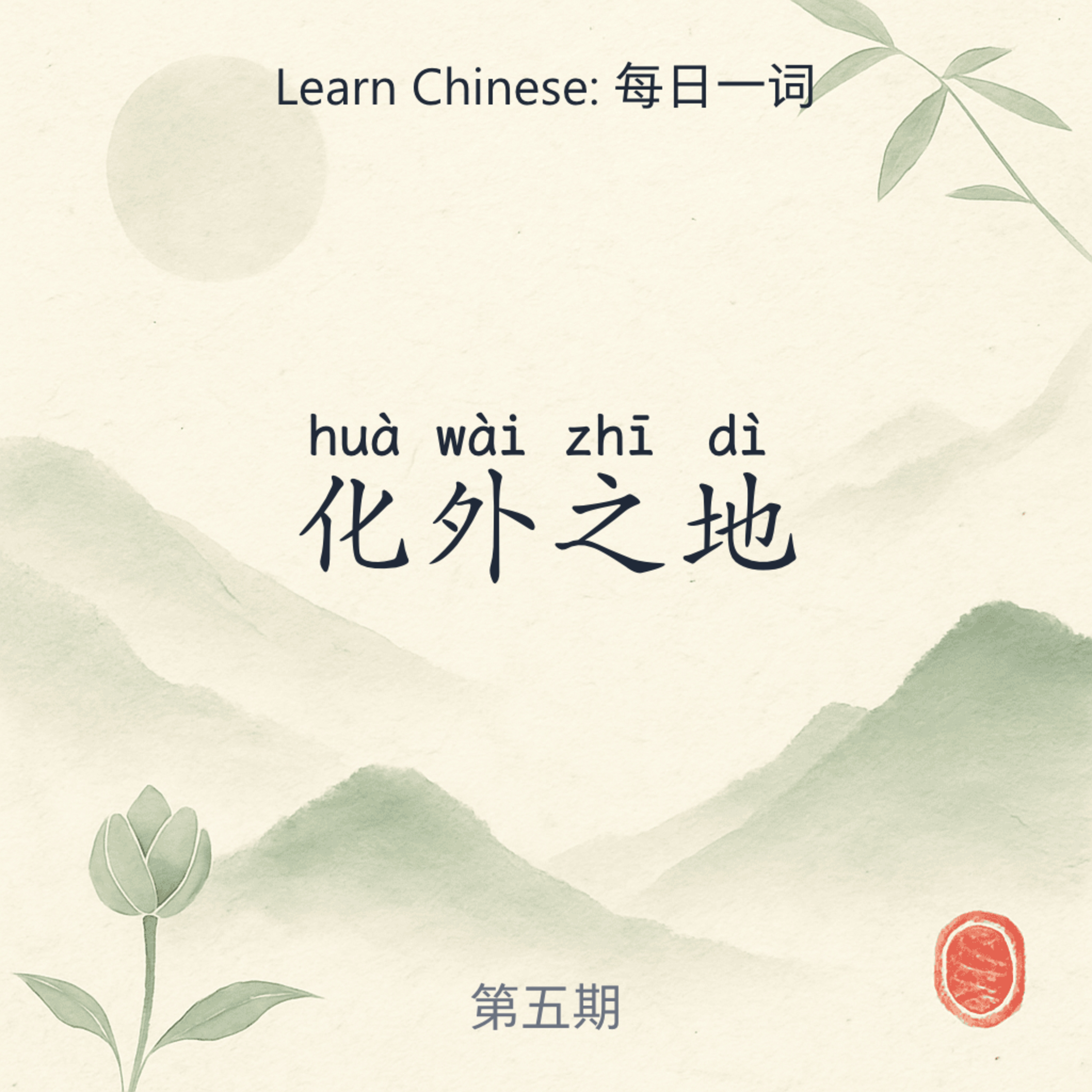
Chinese Word of the Day | 每日一词化外之地 (huà wài zhī dì)特师的每日一词,2026年1月4日的词汇是:化 huà 外 wài 之 zhī 地 dì释义 Definition化外之地在古代指王朝统治范围之外、尚未接受中原文化教化的偏远地区,引申还没有被文明转化的地区。Hua wai zhi di in ancient times referred to remote areas outside the dynasty's rule that had not yet accepted the civilization and teachings of the Central Plains culture, extended to mean regions not yet transformed by civilization.例句 Example近日的《三联生活周刊》中,有篇标题为《在地理踏访中,找到解决历史问题的方法》的文章,作者邢海洋是这样用这个词的:「如果沿着历史的脉络,岭南在相当长的历史时期内还都是流放犯人的地方,是一个化外之地。唐朝的韩愈因为谏佛骨被流放到潮州,那里边还有很多鳄鱼。宋朝诸如苏轼、苏辙被流放到岭南,更是我们大家所熟知的情况。」这里说的是古代岭南地区因为远离中原,被认为是文明未开化的偏远地带。In the January 4, 2026, issue of Sanlian Life Weekly, an article titled 'Finding Solutions to Historical Problems Through Geographical Exploration' by author Xing Haiyang uses this term as follows: 'If following the thread of history, Lingnan was for a long time a place for exiling criminals, a hua wai zhi di. Han Yu of the Tang Dynasty was exiled to Chaozhou for admonishing against the Buddha's bones, where there were still many crocodiles. In the Song Dynasty, figures like Su Shi and Su Zhe were exiled to Lingnan, situations well-known to us all.' This refers to how ancient Lingnan, being far from the Central Plains, was considered a remote, uncivilized area.你知道吗? Did You Know?你知道吗?‘化外之地’常与‘蛮荒之地’‘边陲’等词互换使用,但更强调‘未被教化’的文化属性。与之相对的词是‘王化...
2026-01-0401 min
China Business NOWA Duty-Free Tale of Two Cities丨PerspectiveHello! Welcome to this edition of CBN Perspective. I’m Stephanie Li.On August 26, Guangzhou inaugurated its first in-city duty-free store in Tianhe District, drawing throngs of shoppers. Notably, Shenzhen also rolled out its first in-city duty-free outlet on the very same day—a synchronized move that marks a pivotal step in enhancing outbound travel convenience for residents of the two Pearl River Delta megacities, offering them streamlined access to duty-free shopping prior to international trips.This milestone follows a key policy push: in August 2024, five central government ministries, including the Ministry of Finance, join...
2025-08-2906 min
China Business NOWPerspective丨An Unlikely “Lychee Express” Gives Spotlight to Lingnan SweetnessHello! Welcome to this edition of CBN Perspective. I’m Stephanie Li.As summer heats up, lychee fruit becomes one of the season's most sought-after treats. And guest what? In the sweltering summer of 2025, an historical drama exploded onto screens like a burst of ripe lychee juice, staining the Lingnan cultural landscape in vibrant red. Adapted from awards-winning author Ma Boyong’s sharp-witted novella, "The Litchi Road" galloped into hearts as Tang Dynasty low-ranking official Li Shande’s Herculean quest to deliver fresh lychees from Lingnan to Chang’an unfolded. This was simply “...
2025-06-2006 min
Edify UnfilteredThe Queen of the LingnanIf you live in Edmonton, chances are you know Amy Quon of The Lingnan and Chicken for Lunch. She’s also been named one of Edify’s 6 Who Inspire 2025. Amy joins Trudy and Steve to talk about the Lingnan’s history in the city and the place it has in the lives of Edmontonians. 6 Who Inspire honours community organizers, business owners, philanthropists and mentors who make Edmonton a great city to live in, and have done so for years, or even decades. It’s Edify’s way of celebrating the Edmontonians who are leading the way, ex...
2025-01-1534 min
Coffee In The Park with Jennifer and CamA Coffee with Amy Quon from The Lingnan RestaurantSend a textJoin us for a coffee and chat with Amy Quon, owner and operator of the famous Chicken for Lunch in downtown Edmonton and the CEO of the oldest Chinese food restaurant in Edmonton, The Lingnan!Tune in to hear Amy's inspirational story of hard work, family, and the key to loyal and returning customers for over thirty-plus years! Amy is a legend in the City of Edmonton and is well known for her infectious personality and humility.Did you know she had two television shows as well? You won't want to miss t...
2024-11-0732 min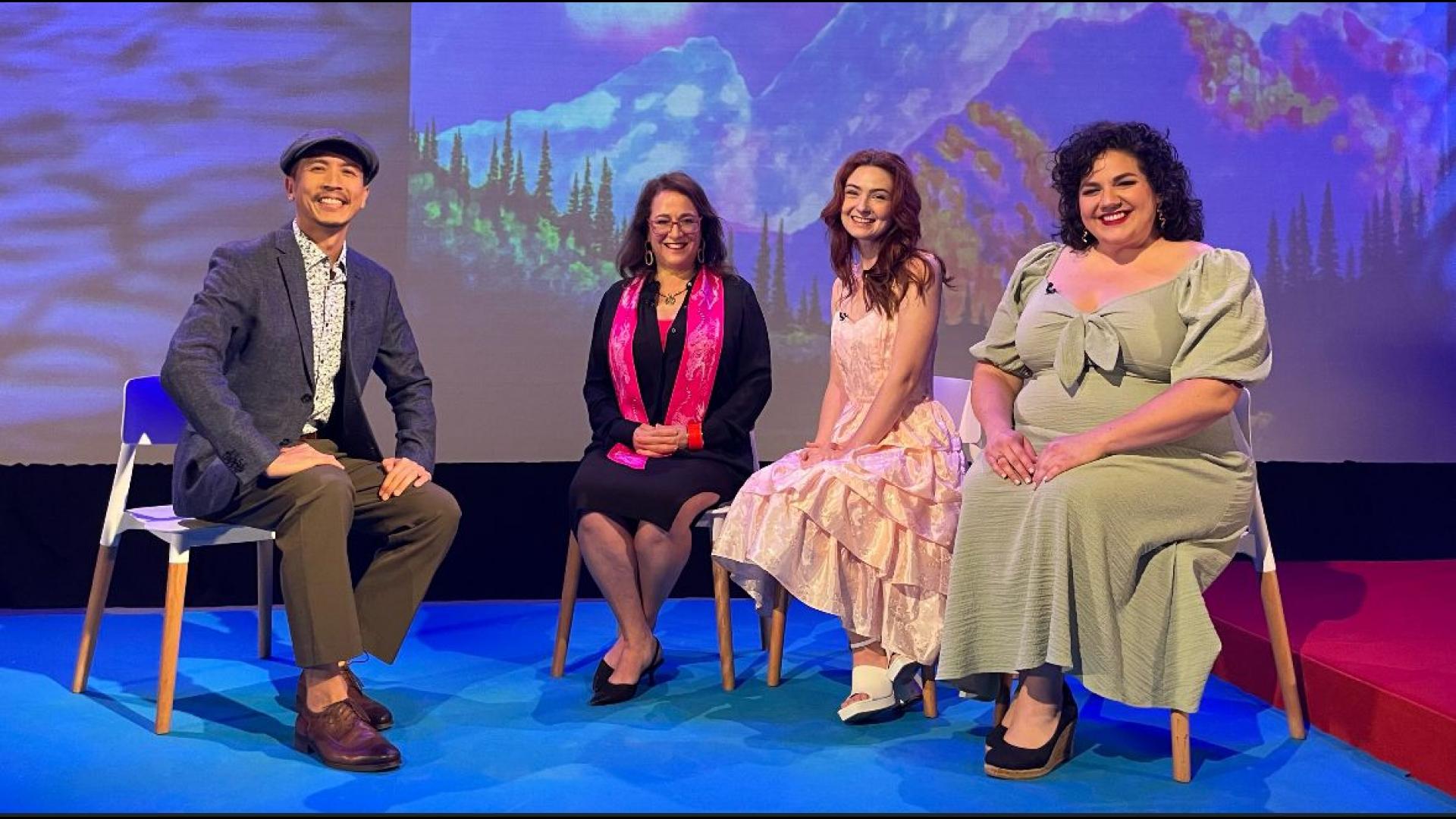
The Works“Under the Same Roof: Origin & Art of Lingnan Traditional Architecture” Exhibition, "Gender Reveal“Under the Same Roof: Origin and Art of Lingnan Traditional Architecture” Exhibition, "Gender Revealed - Not a Party But An Exhibition” at at 480.0 Gender & Art Space & In the Studio : “SOUND OF MUSIC”
2024-04-0921 min
The Last Supper - Art in AsiaEp.69 | Dr Caroline Ha Thuc on her residency programme Walden, the ecology of cocao, and on getting rid of discourses.Dr Caroline Ha Thuc is a researcher, curator, writer and lecturer. I met her at Asia Art Archive in Hong Kong and together we talked about her residency programme Walden, her current project about the ecology of cacao in Asia, we delved into the challenges of today’s discourses, and her role as a lecturer.
Dr. Caroline Ha Thuc is a French Hong Kong based independent art writer and curator. She holds a PhD from the School of Creative Media, City University Hong Kong.
Specialised in Asian contemporary art, Ha Thuc contributes regularly to different ma...
2023-07-2943 min
How to Read Chinese Poetry PodcastThe Grand Finale of How to Read Chinese Poetry PodcastThis episode you are listening to is the soundtrack of the Grand Finale of How to Read Chinese Poetry Podcast.
Click the link to watch the video and subscribe to our channel: https://youtu.be/y-ng5CkofkM.
The grand finale of The How to Read Chinese Poetry Podcast Program was successfully held at Boston Time 8:00 PM on February 25 / Hong Kong Time 9:00 AM on February 26, 2023. Thirteen guest hosts from USA, Canada, Singapore and Hong Kong attended this online meeting hosted by Prof. Zong-qi Cai, host and producer of this podcast program.
Pr...
2023-03-281h 24
Aporia PodcastThe Heterodox Academy has FAILED! | Nathan CofnasNathan Cofnas is a Leverhulme Early Career Fellow in the Faculty of Philosophy at the University of Cambridge. He works in the philosophy of biology (very broadly construed) and ethics, and the intersection of these fields. He is particularly interested in scientific and ethical controversies connected with evolution-informed social science. Nathan aspires to do philosophy that is continuous with science. Most of his work deals with methodological issues at the border between science and philosophy, and about half of his publications are in science journals. Nathan studied at Oxford (DPhil, Philosophy), Cambridge (MPhil, History and Philosophy of Science), Lingnan, a...
2023-03-1858 min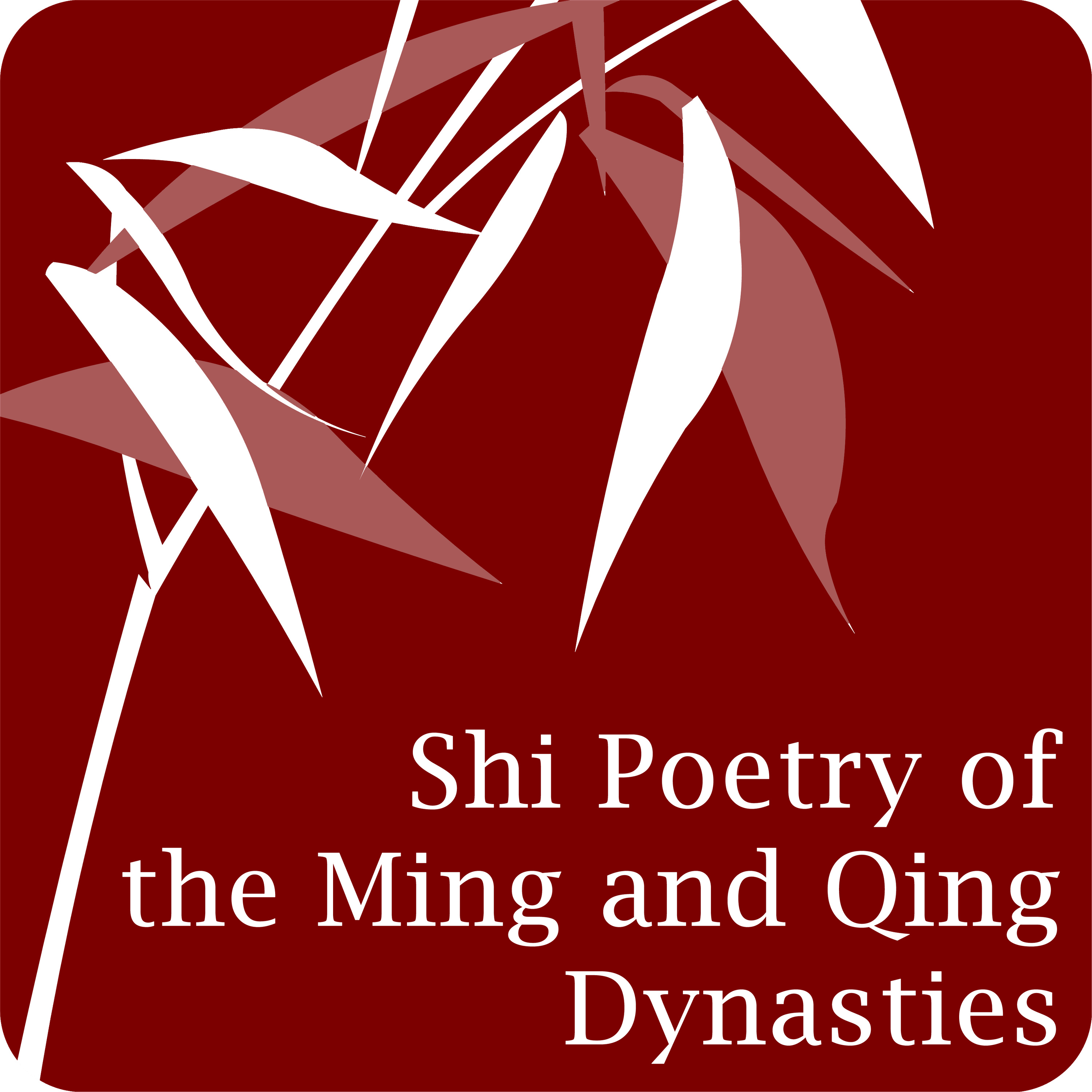
How to Read Chinese Poetry PodcastPoetry: Poetry of the Ming and Qing Dynasties: The Pain of Loss and the Pleasures of Everyday LifeIn this final episode, we will first listen to the “Song of Suffering Calamity” by the woman poet and scholar Wang Duanshu (1621-ca. 1680), narrating her flight from the invading Qing army during the Ming-Qing transition. We will conclude with two examples by women among the many poems in the Ming and Qing that record quotidian pleasures and reflections on daily life. Whether pain and loss or pleasure and joy, men and women in late imperial China inscribed their emotions and thoughts in poetry.
Guest Host: Prof. Grace Fong
2023-02-2722 min
How to Read Chinese Poetry PodcastPoetry of the Ming and Qing Dynasties: Poetry as AutobiographyAn outstanding development in this period is the practice of writing poetry as autobiography, as the record of a life story. We will discuss the life-long collection of over 1000 poems by an eighteenth-century woman poet to illustrate her poetic self-construction.
Guest Host: Prof. Grace Fong
2023-02-2028 min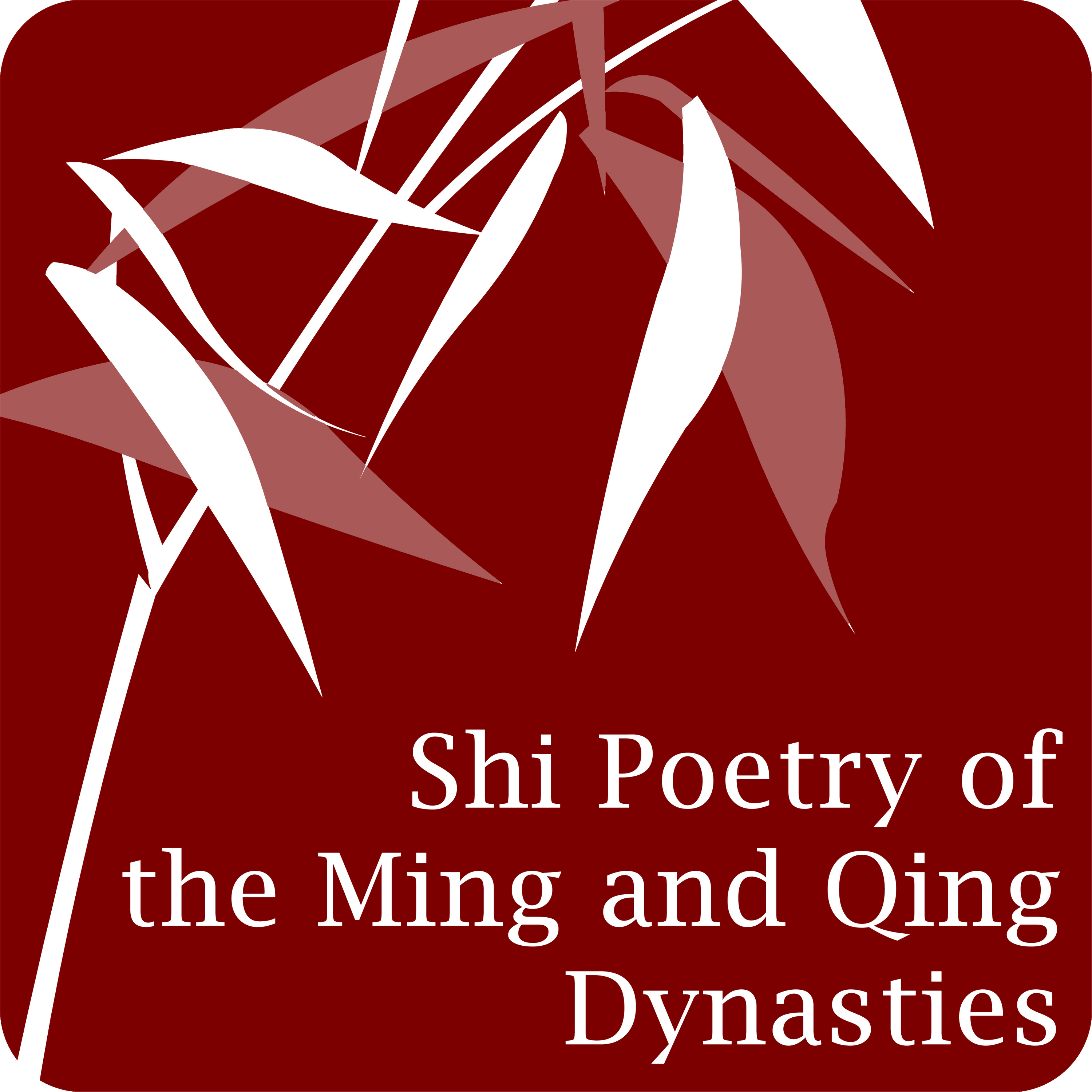
How to Read Chinese Poetry PodcastPoetry of the Ming and Qing Dynasties: Poetic Theory and Practice in the Ming and QingThe Ming, and especially the Qing, witnessed the unprecedented spread of writing poetry among literate men and women in the history of imperial China. This episode introduces the influential theories of poets, such as Yuan Mei’s “native sensibility” (xingling), which promoted naturalness and personal expression over formal learning and ethical concerns, thus encouraging the common practice of poetry.
Guest Host: Prof. Grace Fong
2023-02-1317 min
How to Read Chinese Poetry PodcastSong Poems (Sanqu) of the Yuan Dynasty: Poetry of Rambunctious Wit and Impudent HumorThe carefree playfulness presented in Wang Heqing’s poem “On the Big Butterfly” tells us much about the cultural milieu of the time when the sanqu flourished, and reminds us of the genre’s origins in streets, marketplaces, and entertainment quarters.
Guest Host: Prof. Lian Xinda
2023-02-0612 min
How to Read Chinese Poetry PodcastSong Poems (Sanqu) of the Yuan Dynasty: The Art of Tongue-in-Cheek - Two Love Songs by Two Great DramatistsThe two love songs—authored by Guan Hanqing and Bai Pu respectively—present humorous dramatic moments in a lively language of everyday speech.
Guest Host: Prof. Lian Xinda
2023-01-3015 min
How to Read Chinese Poetry PodcastSong Poems (Sanqu) of the Yuan Dynasty: The Power of Poetic ImageryUsing a cluster of carefully chosen images, Ma Zhiyuan’s “Autumn Thoughts” invites readers to identify themselves with a weary traveler, a “heartbroken man at the end of the earth.”
Guest Host: Prof. Lian Xinda
2023-01-2310 min
How to Read Chinese Poetry PodcastLong Song Lyrics (Manci) of the Song Dynasty: Li Qingzhao - Singing Her Autumn SorrowA master of tune and sense, Li Qingzhao knows how to bring out her almost unspeakable inner feeling through her skillful employment of the ci form, the music of words.
Guest Host: Prof. Lian Xinda
2023-01-1611 min
How to Read Chinese Poetry PodcastLong Song Lyrics (Manci) of the Song Dynasty: Su Shi - Meditation on the PastSu Shi does not only expand the subject matter of the ci poetry, but also gives his song lyrics a genuine personal voice, an unambiguous autobiographical tone as that found in the shi poetry.
Guest Host: Prof. Lian Xinda
2023-01-0911 min
How to Read Chinese Poetry PodcastLong Song Lyrics (Manci) of the Song Dynasty: Liu Yong’s Use of Leading Words (lingzi)Thanks to his innovative use of leading words (lingzi), Liu Yong creates a multilayered structure for his poetic description and narration, which allows him to explore time and space, to involve things both far and near, to relate the parts to the whole, and to weave what is outside with what is inside.
Guest Host: Prof. Lian Xinda
2023-01-0216 min
How to Read Chinese Poetry PodcastShort Songs in the Song Dynasty: “I ask you, how much sorrow can there be?” - Later Literati Song LyricsThis episode discusses how the genre begins to broaden thematically in the work of somewhat later literati poets who continued to write in the short xiaoling form. Poems by the Last Emperor of the Southern Tang, Li Yu, and by Northern Song statesman Yan Shu demonstrate how the genre begins to take on themes like nostalgia and friendship.
Guest Host: Dr. Maija Samei
2022-12-2624 minΙστορία μιας πόληςΔεκέμβρης του 1944: Η μαύρη περίοδος της ΑθήναςΔύο μήνες μετά την Απελευθέρωση, από το Δεκέμβρη του 1944 μέχρι τον Ιανουάριο του 1945, η Αθήνα φλέγεται. Μια σειρά ένοπλων συγκρούσεων ανάμεσα στις βρετανικές και κυβερνητικές δυνάμεις από τη μία πλευρά, και τον ΕΛΑΣ από την άλλη καθιστούν την πρωτεύουσα πεδίο μάχης. Ποιο ήταν το πολιτικό σκηνικό στην πόλη και στη χώρα πριν τα Δεκεμβριανά; Η αθηναϊκή κοινωνία σε τι κατάσταση βρίσκεται το Δεκέμβριο του 1944;Τι συμβαίνει στις 3 Δεκέμβρη 1944; Τι γνωρίζουμε για το συλλαλητήριο στο Σύνταγμα; Και τι συμβαίνει την επομένη, στις 4 Δεκέμβρη, προς την Ομόνοια αυτή τη φορά; Σε αυτά και μερικά ακόμα ερωτήματα απαντά ο Στάθης Καλύβας, καθηγητής Πολιτικής Επιστήμης στο Πανεπιστήμιο της Οξφόρδης, όπου κατέχει την έδρα Gladstone, την αρχαιότερη έδρα πολιτικής επιστήμης στην Βρετανία. Στην Οξφόρδη είναι επίσης εταίρος (fellow) του Κολλεγίου AllSouls.Ο κ. Καλύβας έως το 2018 ήταν καθηγητής Πολιτικής Επιστήμης στο Πανεπιστήμιο Yale, στην έδρα ArnoldWolfers. Στο Yale ίδρυσε και διεύθυνε το Πρόγραμμα για την Μελέτη της Τάξης, των Συγκρούσεων και της Βίας, ενώ συνδιεύθυνε το Πρόγραμμα Ελληνικών Σπουδών. Στην Οξφόρδη ίδρυσε και διευθύνει το Πρόγραμμα T. E. Lawrence για την Μελέτη των Συγκρούσεων και της Βίας. Αποφοίτησε από το Τμήμα Πολιτικής Επιστήμης και Δημόσιας Διοίκησης του Εθνικού Καποδιστριακού Πανεπιστημίου Αθηνών το 1986 και ξεκίνησε μεταπτυχιακές σπουδές στο Πανεπιστήμιο του Σικάγου με υποτροφία του Ιδρύματος Fulbright, απ’ όπου έλαβε το διδακτορικό του δίπλωμα από το Τμήμα Πολιτικής Επιστήμης το 1993. Ξεκίνησε την ακαδημαϊκή του σταδιοδρομία ως επίκουρος καθηγητής στο OhioStateUniversity, συνέχισε στο NewYorkUniversity και ακολούθως στο UniversityofChicago ως αναπληρωτής καθηγητής. Εξελέγη καθηγητής στο Yale το 2003. Υπήρξε επισκέπτης καθηγητής/ερευνητής στα πανεπιστήμια SciencesPo (Παρισιού), Οξφόρδης, Northwestern, Columbia, SãoPaulo, Lingnan (HongKong), Witten/Herdecke, JuanMarchInstitute, MaxPlanckInstitute και στο Ευρωπαϊκό Πανεπιστημιακό Ινστιτούτο Φλωρεντίας. Είναι μέλος επιστημονικών συμβουλίων και ερευνητικών κέντρων της Ευρώπης και των Ηνωμένων Πολιτειών. Το βασικό του ερευνητικό αντικείμενο είναι οι εμφύλιοι πόλεμοι και η πολιτική βία εν γένει. Έχει δημοσιεύσει πάνω από πενήντα ερευνητικά άρθρα και είναι συγγραφέας, μεταξύ άλλων, των παρακάτω βιβλίων: The Logic of Violence in Civil War (Cambridge University Press, 2006), The Rise of Christian Democracy in Europe (Cornell University Press, 1996) και Greece: What Everyone Should Know (Oxford University Press, 2015). Στα ελληνικά έχει δημοσιεύσει τα βιβλία Καταστροφές και Θρίαμβοι: οι 7 Κύκλοι της Σύγχρονης Ελληνικής Ιστορίας (Παπαδόπουλος 2015), Εμφύλια Πάθη: 23 Ερωτήσεις και Απαντήσεις για τον Εμφύλιο (με το Νίκο Μαραντζίδη, Μεταίχμιο 2015) και Πού Είμαστε και πού Πάμε (Μεταίχμιο 2016), καθώς και Το Ελληνικό όνειρο (Μεταίχμιο 2020). Είναι τακτικός αρθρογράφος της εφημερίδας Καθημερινή από το 2009. Άρθρα και παρεμβάσεις έχουν δημοσιευθεί σε μεγάλα διεθνή μέσα όπως στους NewYorkTimes, FinancialTimes, ForeignAffairs, ForeignPolicy, TheAtlantic και αλλού. Το 2008 εξελέγη στην Αμερικανική Ακαδημία Τεχνών και Επιστημών και το 2020 στην Βρετανική Ακαδημία.
2022-12-2228 min
How to Read Chinese Poetry PodcastShort Songs in the Song Dynasty: Feeling and Scene - Early Literati Song LyricsThis episode discusses early efforts of literati poets in the song lyric, showing how their works reflect the genre’s origins in the entertainment quarters and remained largely tied to feminine themes, while they bore evidence of poetic craft. Examples show how Wei Zhuang’s more direct and lyrical expression contrasts with Wen Tingyun’s more implicit presentation.
Guest Host: Dr. Maija Samei
2022-12-1918 min
How to Read Chinese Poetry PodcastShort Songs in the Song Dynasty: “I’ve no heart to love another” - A Pair of Anonymous Poems in DialogThis episode introduces us to the genre of the song lyric using two anonymous poems that present a male and female speaker in dialog. The episode discusses the origins of the genre during the Tang dynasty, its formal characteristics, and its connection to female voice and feminine themes.
Guest Host: Dr. Maija Samei
2022-12-1219 min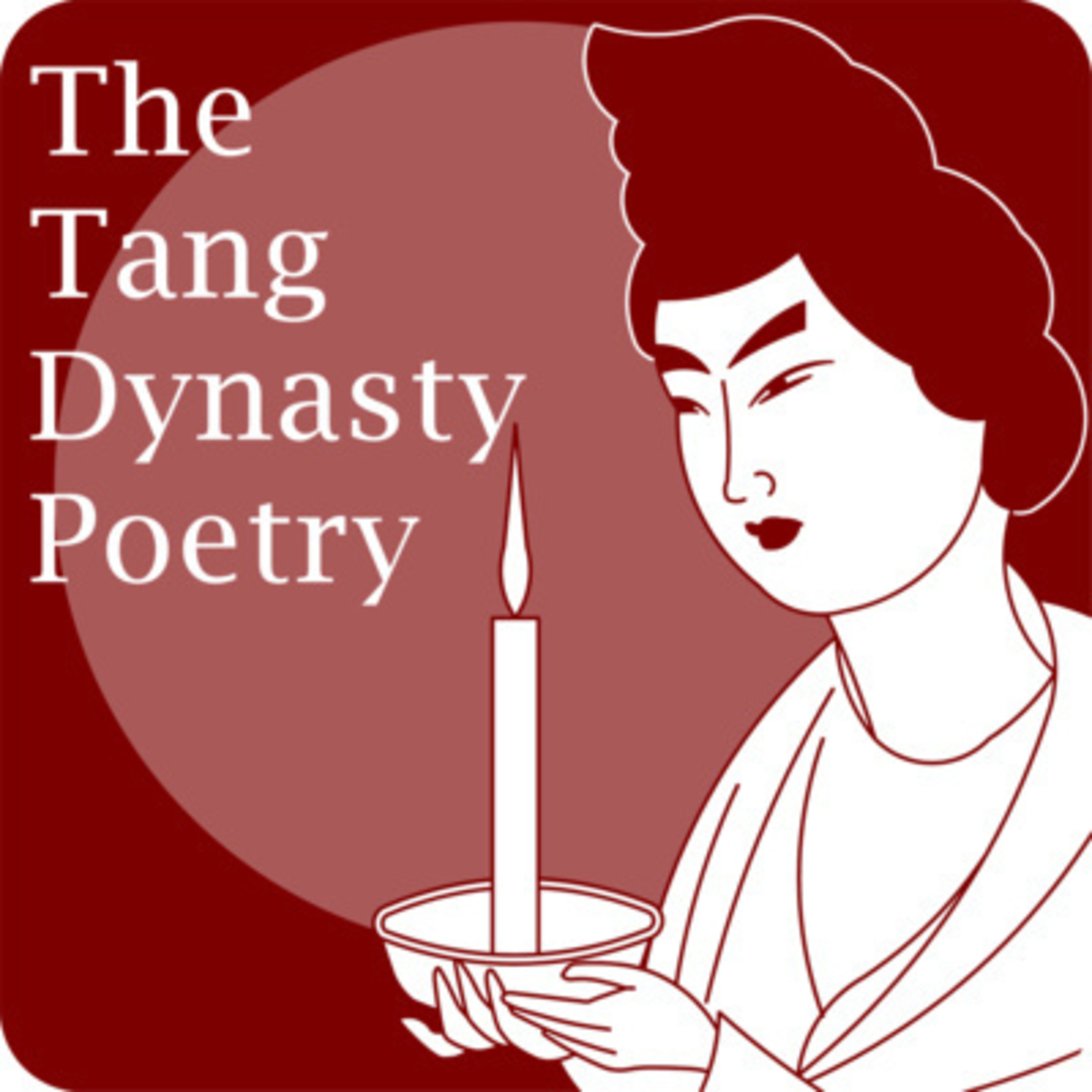
How to Read Chinese Poetry PodcastThe Sounds of the Tang Poetry: Transcultural Performance - American Guqin Artist at Lingnan: Tang Poetry and Guqin MusicThis podcast you are listening to is the soundtrack of the 9th episode of HOW TO READ CHINESE POETRY VIDEOS.
John Thompson, the best-known performer of early music for the Chinese guqin zither, has since 1976 reconstructed over 200 melodies from 15th to 17th century sources and given numerous solo performances worldwide. His website, www.silkqin.com, the most comprehensive source of information on this subject, receives thousands of hits daily. In 2019 a two-hour documentary about his guqin work was released. In this episode, the American guqin artist plays several tunes related to Tang Poetry and shares his reflections u...
2022-12-0511 min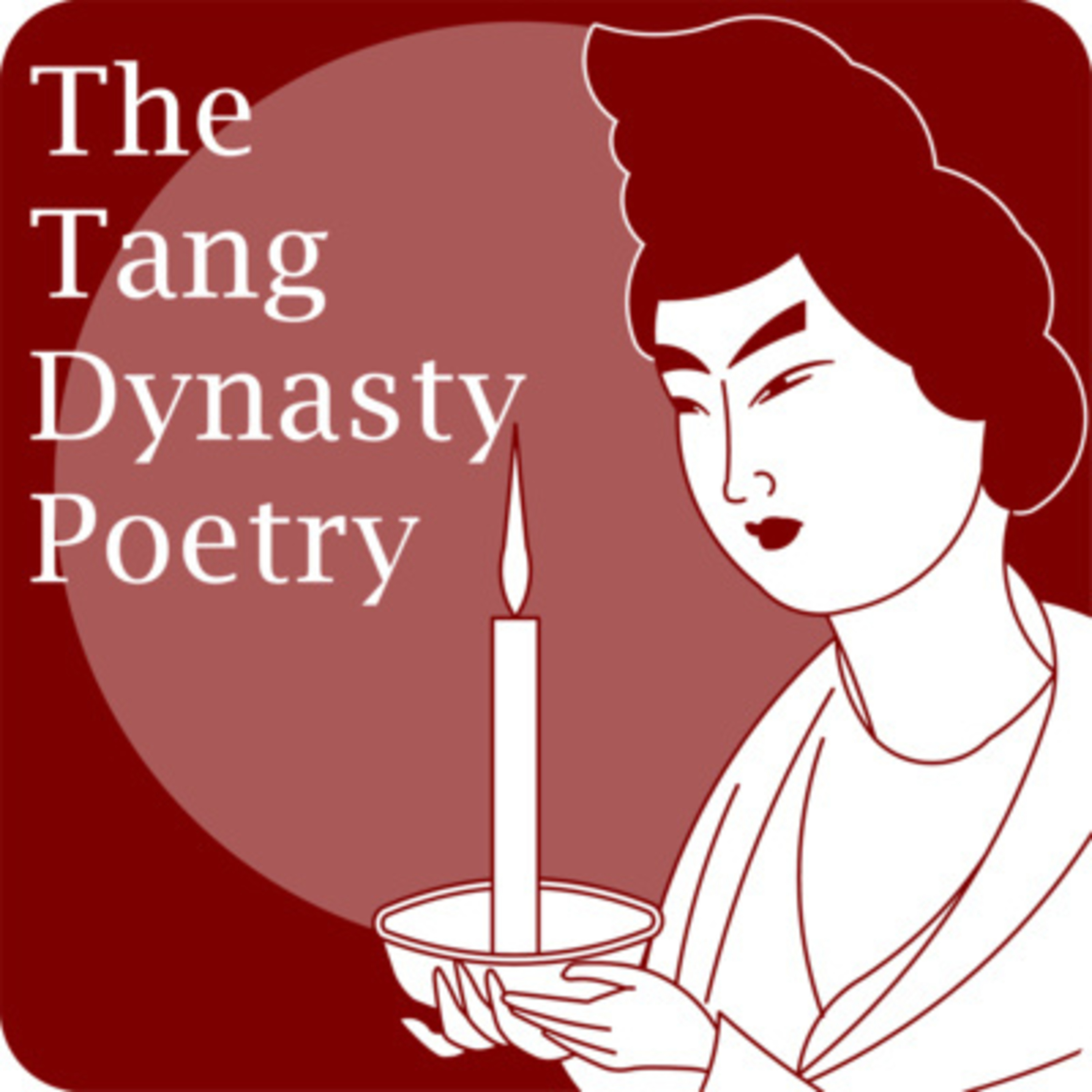
How to Read Chinese Poetry PodcastThe Sounds of the Tang Poetry: Transcultural Performance - Li Bai in Nashville: An American Singing Tang PoemsThis podcast you are listening to is the soundtrack of the 8th episode of HOW TO READ CHINESE POETRY VIDEOS.
Andrew Merritt writes new songs inspired by Tang poems, adopting the style of American country and folk music. In this episode, the songwriter shares his love for the poems, opens a window to his songwriting process, and plays three songs from his album of "Twang Dynasty" songs.
Click the link to watch the video and subscribe to our channel: https://youtu.be/u8Kr5nCZSzE.
More How to Read Chinese Poetry Videos:
Fr...
2022-11-2827 min
How to Read Chinese Poetry PodcastThe Sounds of the Tang Poetry: Transcultural Performance - From Kuyin to Yinsong: Constructing and Reciting Regulated VerseThis podcast you are listening to is the soundtrack of the 7th episode of HOW TO READ CHINESE POETRY VIDEOS.
In Professor Stalling’s second episode, we return to the Tang and Song “rhyme studies” tradition, but this time he invites our listeners to become “zhiyin” (those who study and understand sound) themselves by taking us step by step through the process of not only composing a regulated jueju in English, but also how all of the tonal prosody, semantic rhythm, and parallelism rules discussed in previous episodes come together to inform distinctive ways of reciting and chanting re...
2022-11-2146 min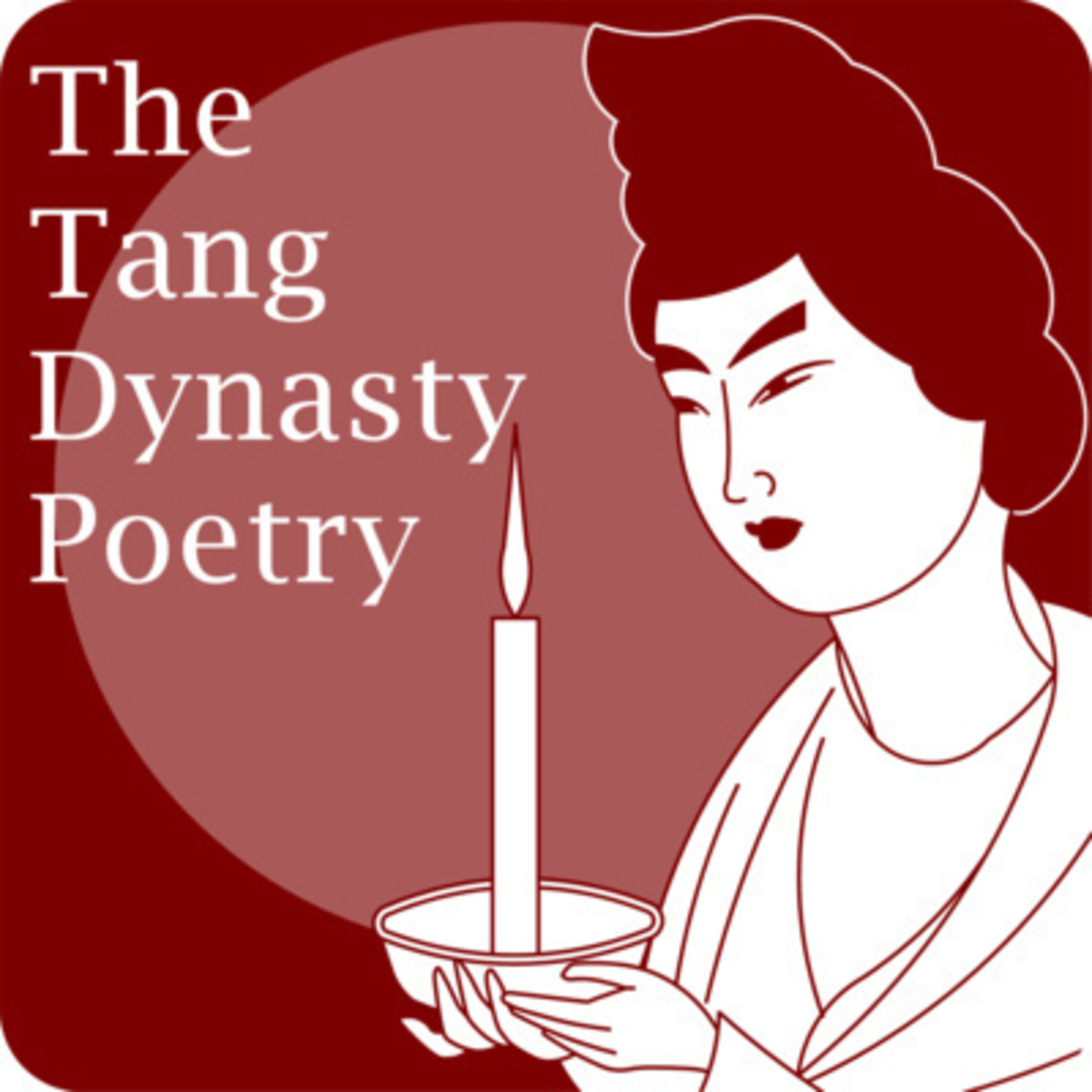
How to Read Chinese Poetry PodcastThe Sounds of the Tang Poetry: Transcultural Performance - From Zhiyin to Yunxue: The Rise of Chinese Rhyme StudiesThis podcast you are listening to is the soundtrack of the 6th episode of HOW TO READ CHINESE POETRY VIDEOS.
In the last few episodes, we have learned about the tonal patterns of regulated verse and some of their cosmological underpinnings. In the next two episodes Professor Jonathan Stalling will delve further into the cultural systems that both gave rise to and later sustained these regulated verse practices for over 1500 years. In the first of these two episodes he will explore the emergence of the 知音 “zhiyin,” a community drawn together by their devotion to create and refine what came...
2022-11-1426 min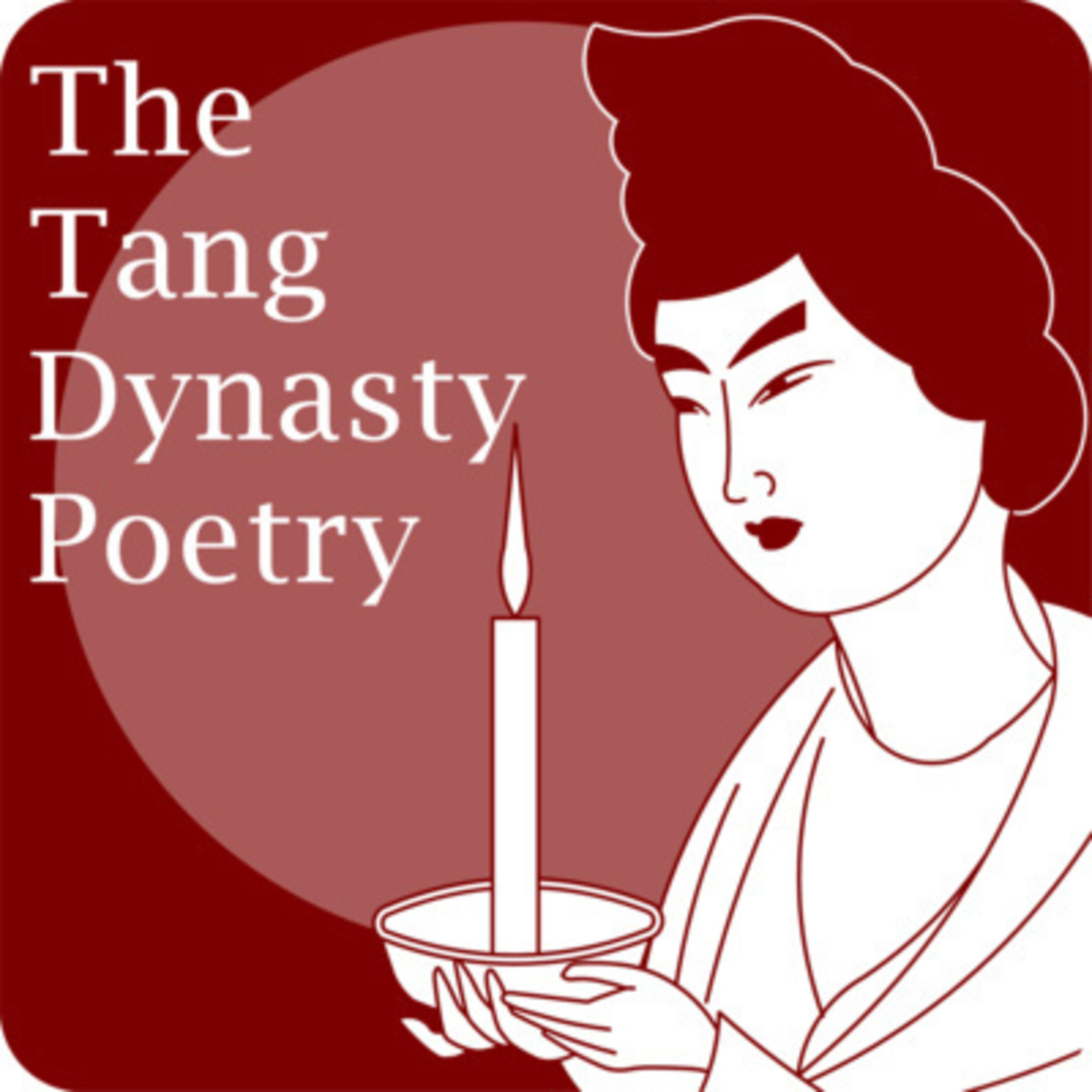
How to Read Chinese Poetry PodcastThe Sounds of the Tang Poetry: Mastering Tonal Patterns of Recent-Style Poetry - Regulated Poetic Forms & Modes of Thinking: Sonnet and LüshiDear Listeners,
This podcast you are listening to is the soundtrack of the 5th episode of HOW TO READ CHINESE POETRY VIDEOS. Going beyond the technical issues of tonal patterning, this episode discusses how the regulated poetic forms of Shakespearean sonnets and Chinese regulated verse embody the Western dualistic and Chinese yin-yang worldviews, respectively. Shakespeare’s sonnet 18 and Du Fu’s "Spring Scene" are compared, in both form and content, to illustrate the fundamental differences in the Elizabethan and traditional Chinese thinking about nature and humanity.
Click the link to watch the video and subscribe to our...
2022-11-0719 min
How to Read Chinese Poetry PodcastThe Sounds of the Tang Poetry: Mastering Tonal Patterns of Recent-Style Poetry - Constructing Heptasyllabic Regulated VerseDear Listeners,
This podcast you are listening to is the soundtrack of the 4th episode of HOW TO READ CHINESE POETRY VIDEOS. This episode shows how easily viewers can construct the heptasyllabic regulated verse tonal patterns—simply by doubling the quatrain tonal patterns. The episode ends by inviting viewers to write out regulated verse tonal patterns on their own.
Click the link to watch the video and subscribe to our channel: https://youtu.be/ipeCVtad9pI.
AIGCS
2022-10-3012 min
How to Read Chinese Poetry PodcastThe Sounds of the Tang Poetry: Mastering Tonal Patterns of Recent-Style Poetry - Constructing Pentasyllabic Regulated VerseDear Listeners,
This podcast you are listening to is the soundtrack of the third episode of HOW TO READ CHINESE POETRY VIDEOS. This episode shows how easily viewers can construct the regulated verse tonal patterns—simply by doubling the quatrain tonal patterns. The episode ends by inviting viewers to write out regulated verse tonal patterns on their own.
Click the link to watch the video and subscribe to our channel: https://youtu.be/iWXosSaZFpU.
AIGCS
2022-10-2513 min
How to Read Chinese Poetry PodcastThe Sounds of the Tang Poetry: Mastering Tonal Patterns of Recent-Style Poetry - Constructing Regulated QuatrainsDear Listeners,
This podcast you are listening to is the soundtrack of the second episode of HOW TO READ CHINESE POETRY VIDEOS. Taking advantage of ppt charts and animation, this episode shows viewers how to follow the three basic rules of tonal patterning to construct tonally regulated lines, then couplets, and finally quatrains. The episode ends by inviting viewers to write out quatrain tonal patterns on their own.
Click the link to watch the video and subscribe to our channel: https://youtu.be/TSoktjvrYok.
AIGCS
2022-10-1919 min
How to Read Chinese Poetry PodcastThe Sounds of the Tang Poetry: Mastering Tonal Patterns of Recent-Style Poetry - Mastering Tones in Modern and Middle ChineseDear Listeners,
Please accept our apologies for being late to upload this new episode of How to Read Chinese Poetry Podcast.
AIGCS is pleased to launch the HOW TO READ CHINESE POETRY VIDEOS (HTRCPV), a companion program of HOW TO READ CHINESE POETRY PODCAST. As a matter of fact, its first episodes are cross-listed as special video episodes (eps. 37-39) of the Podcast. Unlike the Podcast, HTRCPV does not track Chinese poetry’s historical development but presents episodes in thematic clusters. Due to the much greater technical challenges in producing videos, we will not be able...
2022-10-1014 min
How to Read Chinese Poetry PodcastWomen and Poetry in the Tang Dynasty -A Traitor and a Murderess: the Poetic Nuns Li Ye and Yu XuanjiThis episode tells the stories of two Daoist nuns, Li Ye, who became a palace woman, and Yu Xuanji, who became a courtesan. Both left behind highly regarded poems but lost their lives to execution. The episode explores the perception of literary talent as it intersects with femininity.
Guest Host: Dr. Maija Bell Samei
Notice:
Dear listeners, we would like to announce that the next nine HTRCP episodes are special video episodes to be watched on YouTube at this link: https://m.youtube.com/watch?v=bxp6Au7JKHE
2022-10-0328 min
How to Read Chinese Poetry PodcastWomen and Poetry in the Tang Dynasty -Courtesans, Poets, and the Courtesan-Poet Xue TaoThis episode discusses the interactions between courtesans and the literati during the Tang and how this is related to the formation of early ci poetry, and then introduces a few works by the well-known courtesan-poetess Xue Tao.
Guest Host: Dr. Maija Bell Samei
2022-09-2628 min
How to Read Chinese Poetry PodcastWomen and Poetry in the Tang Dynasty - Writing women from the inner quarters to the halls of power: Shangguan Wan’erThis episode introduces the problem of writing for women in the Tang in terms of the ritual regulation of women’s behavior and the social nature of poetry writing, then discusses the poetry of Shangguan Wan’er, a palace woman who became secretary to Empress Wu Zetian and also served at the court of her successor Emperor Zhongzong, becoming his consort.
Guest Host: Dr. Maija Bell Samei
2022-09-1920 min
How to Read Chinese Poetry PodcastThe Tang Dynasty: Quatrains - Waking from a Yangzhou Dream: Middle and Late TangThis episode discusses the differences in tonal patterns between wujue and qijue, which had a clear impact on poetic practice. After the Tang, wujue became increasingly rare; we can conclude that poets no longer saw creative potential in the form—the great Tang writers had exhausted it. Qijue, on the contrary, remained one of the most popular and expressive poetic forms throughout the classical period.
Guest Host: Prof. Charles Egan, San Fransico State University
English poem recital by Andrew Merritt @ Andrew Merritt (divacatrecords.com)
2022-09-1229 min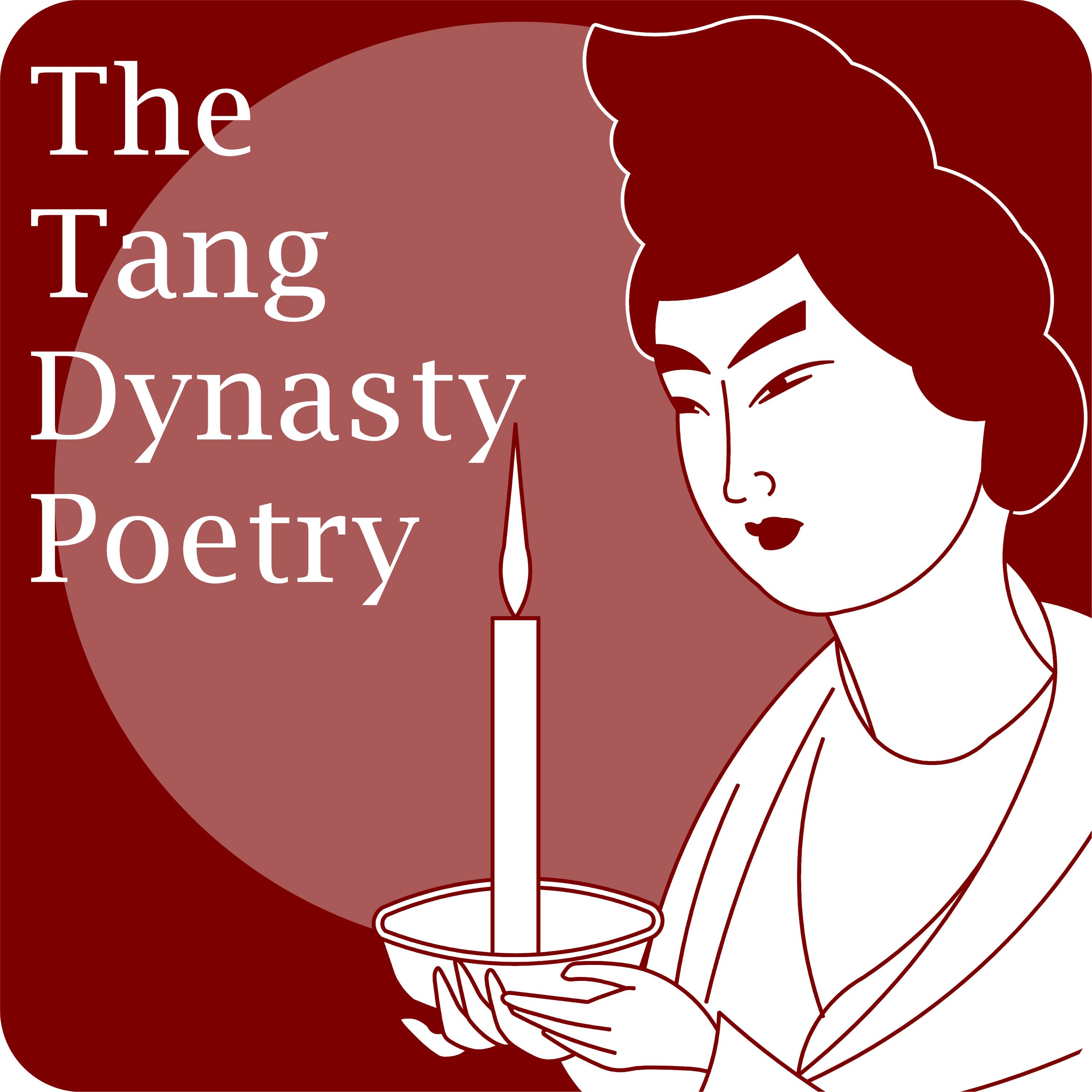
How to Read Chinese Poetry PodcastThe Tang Dynasty: Quatrains - The Boudoir and the Frontier: High TangAlthough a small number of Six Dynasties heptasyllabic quatrains are extant, and Early Tang poets experimented with the form, stylistically mature qijue poetry was an invention of the High Tang poets, most notably Wang Changling and Li Bai. Qijue developed along with Tang popular music, for which it was the major song form. Thus initially the thematic scope was narrow: qijue lyrics were generally limited to popular yuefu themes and those describing parting from friends and loved ones. Only gradually did the scope of qijue themes expand, until by the Middle and Late Tang, the form had become a...
2022-09-0522 min
How to Read Chinese Poetry PodcastThe Tang Dynasty: Quatrains - Empty Mountains and Mirror Ponds: High TangAlthough Tang poets all used wujue to record concentrated poetic experience, and pursued the same fundamental aesthetic goals for the form, differing styles of poems can be discerned. Using representative poems by Wang Wei, Wang Zhihuan, and Li Bai, this episode presents two basic styles of Tang wujue, differentiated primarily by the choice of themes and the type of language employed.
Guest Host: Prof. Charles Egan, San Fransico State University
English poem recital by Andrew Merritt @ Andrew Merritt (divacatrecords.com)
2022-08-2925 min
How to Read Chinese Poetry PodcastThe Tang Dynasty: Quatrains - Songs of the Heart, Verses of Nature: Pre-Tang QuatrainsThe Chinese equivalent term of quatrain, i.e., jueju, literally means “cut-off lines.” It was erroneously believed by many critics that this meant the wujue and qijue forms had originated as quatrain segments cut from the eight-line lüshi forms. This episode begins with close readings of representative poems to provide readers a sense of the thematic and formal origins of jueju. A detailed examination of common jueju features then follows.
Guest Host: Prof. Charles Egan, San Fransico State University
English poem recital by Andrew Merritt @ Andrew Merritt (divacatrecords.com)
2022-08-2227 min
How to Read Chinese Poetry PodcastRecent-Style Poetry: Pentasyllabic Regulated Verse - Wang Wei the Poet-ImmortalThis episode examines how Wang Wei embodies moments of heightened perception or rather Buddhist enlightenment through his painterly depiction of a mountain climbing trip. His masterful blending of illusive images, perceptual illusion, and Buddhist worldview exemplifies his towering achievement as the poet-Buddha.
Host: Zong-qi Cai, Lingnan University of Hong Kong; University of Illinois, Urbana-Champaign
English poem recital by Andrew Merritt @ Andrew Merritt (divacatrecords.com)
2022-08-1511 min
How to Read Chinese Poetry PodcastRecent-Style Poetry: Pentasyllabic Regulated Verse - Li Bai the Poet-ImmortalThis episode examines Li Bai’s self-fashioning as a free spirit or rather the creator of the universe in a poetic form seemingly ill suited for making glamorous claims. The poem discussed is not among the best known of his works but well attests to his reputation as the poet-immortal.
Host: Zong-qi Cai, Lingnan University of Hong Kong; University of Illinois, Urbana-Champaign
English poem recital by Andrew Merritt @ Andrew Merritt (divacatrecords.com)
2022-08-0809 min
How to Read Chinese Poetry PodcastRecent-Style Poetry: Pentasyllabic Regulated Verse - Du Fu the Poet-SageThis episode provides a close reading of Du Fu’s “Jiang and Han Rivers” and shows how the poet makes a masterful use of topic+comment construction to project his Confucian vision of the universe and the self and earns himself the title of poet-sage.
Host: Zong-qi Cai, Lingnan University of Hong Kong; University of Illinois, Urbana-Champaign
English poem recital by Andrew Merritt @ Andrew Merritt (divacatrecords.com)
2022-08-0110 min
How to Read Chinese Poetry PodcastRecent-Style Poetry: Pentasyllabic Regulated Verse - Dancing with Shackled Feet: Art of Recent-Style PoetryThis episode explains the lexical, syntactic, and structural rules of regulated verse and shows how high Tang masters turn these formal rules into a nonpareil vehicle of projecting their visions of the universe and the self, as evidenced in Du Fu’s famous poem “Spring Scene.”
Host: Zong-qi Cai, Lingnan University of Hong Kong; University of Illinois, Urbana-Champaign
2022-07-2534 min
How to Read Chinese Poetry PodcastPentasyllabic Shi Poetry: Landscape Poetry - Xie Tiao: The Integration of LandscapeThis episode concludes our exploration of Six Dynasties landscape poetry by considering the verse of Xie Tiao (464–499). By Xie Tiao's time, landscape was becoming an increasingly common topic within the world of courtly verse. Partly for this reason, Xie's poetry begins to efface the previously definitive distinction between the human world and the natural landscape, and moreover imbues that landscape with the passions of the courtier—in Xie's case, both his yearning for the court and capital and his well-justified fear of the dangers of court politics.
Guest Host: Lucas Rambo Bender, Yale University
English poem...
2022-07-1819 min
How to Read Chinese Poetry PodcastPentasyllabic Shi Poetry: Landscape Poetry - Xie Lingyun's "Mountains and Waters"Xie Lingyun (385–433) is generally recognized as the progenitor and paradigm of poetry on "mountains and waters" (shanshui 山水). Where Tao Qian had written predominantly of the only-partly wild landscapes near his cottage, Xie made his theme the dramatic wildernesses of the southlands. Much of his poetry concerns the scenery of his massive estate, which he staffed with a small army of servants and retainers. His most powerful verse, however, was written in the rugged, unforgiving landscapes he passed through on journeys into exile.
Guest Host: Lucas Rambo Bender, Yale University
English poem recital by Andrew Merritt @ Andrew...
2022-07-1120 min
How to Read Chinese Poetry PodcastPentasyllabic Shi Poetry: Landscape Poetry - Tao Qian's "Fields and Gardens"Tao Qian (365–427) is premodern China's most famous recluse. After relinquishing his official career at around age 40, Tao returned to his rustic hometown to hide away from what he often suggested was a corrupt court and society. In the hermitage he made for himself at the foot of Mt. Lu, Tao wrote poetry that, on the one hand, extolls his enjoyment of life on the rural margin between the human world and the wilderness and, on the other, narrates the difficulties he had making a living there. For the first time in Chinese history, this is a poetry that grapples in...
2022-07-0420 min
How to Read Chinese Poetry PodcastPentasyllabic Shi Poetry: Landscape Poetry - Landscapes of the MindThis episode discusses the prehistory of Chinese landscape poetry. In the centuries before poets began to write consistently of their concrete, personal experiences out in nature, landscape appeared in poetry primarily as a foil for the city and the court, where most poets were writing. In this role, the natural landscape could be terrifyingly inhospitable or wondrous and pure. Either way, it was for the most part imagined rather than experienced, a site more often for mental roaming than for extended in-person exploration.
Guest Host: Lucas Rambo Bender, Yale University
English poem recital by Andrew...
2022-06-2719 min
How to Read Chinese Poetry PodcastHan Ancient-style Poetry: The “Nineteen Old Poems” - Reflection through a Female Persona: a Mosaic of EmotionsThe first of the “Nineteen Old Poems”, the best known poem of an abandoned woman in the collection, features a mosaic combination of time, space, and emotion fragments and thereby captures the otherwise inexpressible melancholy of an abandoned woman. Such a mosaic combination is to become a preferred structure for the most intense of lyrical expressions in later poetry.
Host: Zong-qi Cai, Lingnan University of Hong Kong; University of Illinois, Urbana-Champaign
2022-06-2011 min
姬羊同笼(新)EP025:当我们谈论百合文化时,我们在谈些什么?这不是一期想要定义「百合」是什么的节目,也不试图加入区分「百合」与 les/拉拉的讨论。
我们从最早接触的百合作品开始,分享自己为何被吸引,从消费者转变为创作者与研究者的故事,也讲到了现在听来略有「时泪」感的百合论坛冲浪史。
回顾种种经历的过程中,我们也逐渐意识到,在这个女性参与、创作的力量仍被低估的时代,「百合」这一自下而上、由每个人独特的想象和实践——比如早于 girlshelpgirls 之说的姐妹关系——构造的文化具备多大潜力。
如果你想安利百合作品,或是分享类似的「百合会/300」的故事,欢迎你留下评论。
本期嘉宾:馬齊Yura(微博@搖來搖去維珍尼亞),端百合专栏作者,性别/次文化研究者。招妹妹,有兴趣讨论百合文化/性别议题相关的妹妹们欢迎微博私信,当然姐姐有兴趣也可以速来。
她发表过的评论文章有《酷儿女性看爱情:百合文化如何颠覆异性恋情感和关系》《东亚女同情感与经历的投射:〈花香〉为何在姬圈爆火?》《爱欲录:我在百合 AV 里“嗑 CP”》《烂尾的 Killing Eve,影史上拉拉爱情的死亡症候群》。
本期目录:
03:39 我们曾经看过的百合 ACG 作品
08:42 「百合」概念在不同类别和载体中的延伸
10:55 Yura 的「入坑史」:刺青和 300(百合会)
15:56 百合、拉拉、les
23:01 Queer Reading(酷儿阅读)和 Queer Baiting(卖 CP)的异同
29:32 突然变成 48 系饭的团建?
30:37 与百合会有关的回忆
39:29 300 姐妹制度和社群的建立
我们提到的:
百合会论坛,俗称 300。
作品包括 ACG 类的《水果篮子》《辉夜姬》《科学超电磁炮》《魔法少女小圆》《魔卡少女樱》《魔法少女奈叶》《少女革命》《圣母在上》《舞-HiME》《惊爆草莓》《回转企鹅罐》《圣母在上》《NOIR》(黑街二人组)、《花吻在上》《屋上的百合灵》《终将成为你》《加濑同学》系列;电视剧《第一次遇见花香的那刻》;电影《刺青》;偶像、真人秀包括《乘风破浪的姐姐》、《双镜》、AKB48、SNH48。
Yura 推荐的资料:
《少女之愛:台灣動漫畫領域中的百合文化》楊若暉 著/2015
Yeung, K. Y. (2017). Alternative sexualities/intimacies? Yuri fans community in the Chinese context (Master's thesis, Lingnan University, Hong Kong).
🎙️
剪辑制作:Shanshan
视觉设计:黑羊
如果你喜欢我们的播客,欢迎通过「发电」激励我们继续创作。爱发电的 ID 同样是姬羊同笼,独家内容包括「莱岛通讯」周报、「黑羊说」专栏等。
📮
Shanshan 微博@两只中年姬
节目邮箱 sheepchicklala@hotmail.com
爱发电上赞助
2022-06-1852 min
How to Read Chinese Poetry PodcastHan Ancient-style Poetry: The “Nineteen Old Poems” - Interplay of Images and Emotions: Binary Structure and Multilateral TextureTwo distinct formal features, binary structure and multilateral texture, are developed in the “Nineteen Old Poems,” the definitive collection of Han pentasyllabic poetry. The rise of these two formal features attests to the profound impact of transitions from oral performance to poetic writing, from the dramatic/narrative to the lyrical mode of self-presentation.
Host: Zong-qi Cai, Lingnan University of Hong Kong; University of Illinois, Urbana-Champaign
2022-06-1315 min
How to Read Chinese Poetry PodcastHan Ancient-style Poetry: The “Nineteen Old Poems” - The Magic of One Additional Character and the Rise of Reflective PoetryAfter nearly one millennium since its birth, Chinese poetry achieved an optimal convergence of sound and sense in its pentasyllabic poems developed during the Eastern Han (25-220 CE). Taking full advantage of an explosive rise of two-character compounds, the anonymous Han pentasyllabic poets created a poetic rhythm far more flexible and expressive than all existing rhythms and adapted it for philosophical reflection and emotional brooding on human transience.
Host: Zong-qi Cai, Lingnan University of Hong Kong; University of Illinois, Urbana-Champaign
2022-06-0619 min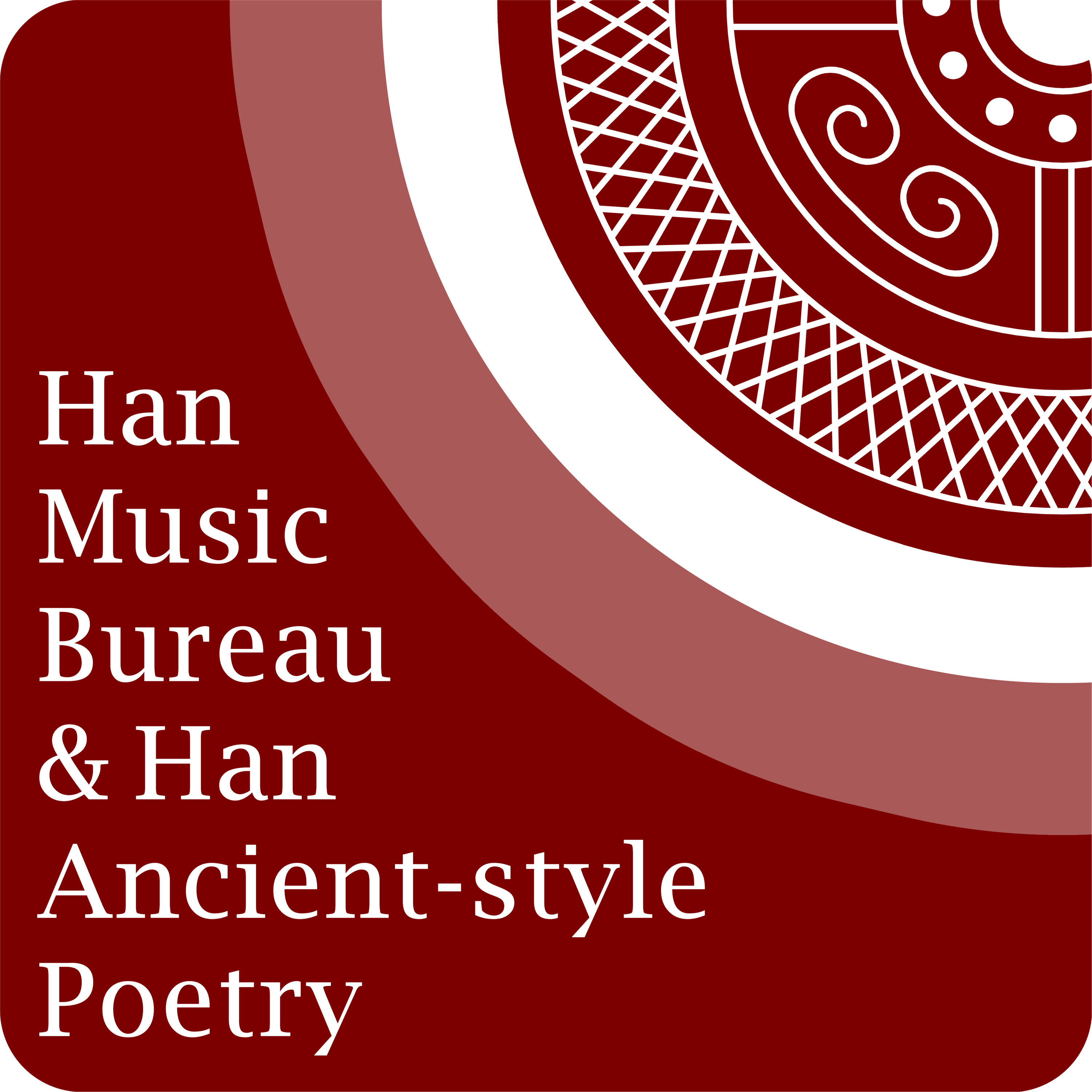
How to Read Chinese Poetry PodcastYuefu Poetry - Political Satire or Coquetry? An Ambiguous SongThis episode discusses the two opposing interpretations of the poem entitled, “Mulberry Along the Lane,” one of the best-known yuefu songs in classical Chinese literature. Traditionally this poem has been interpreted as a representation of social injustice, depicting the situation of an official harassing a peasant girl. The other perspective is the poem is simply a verbal flirtation between a man and a woman and a popular song about a clever lady who employs an engaging and inoffensive way to turn down her suitor.
Guest host: Jui-lung Su, National University of Singapore
2022-05-3019 min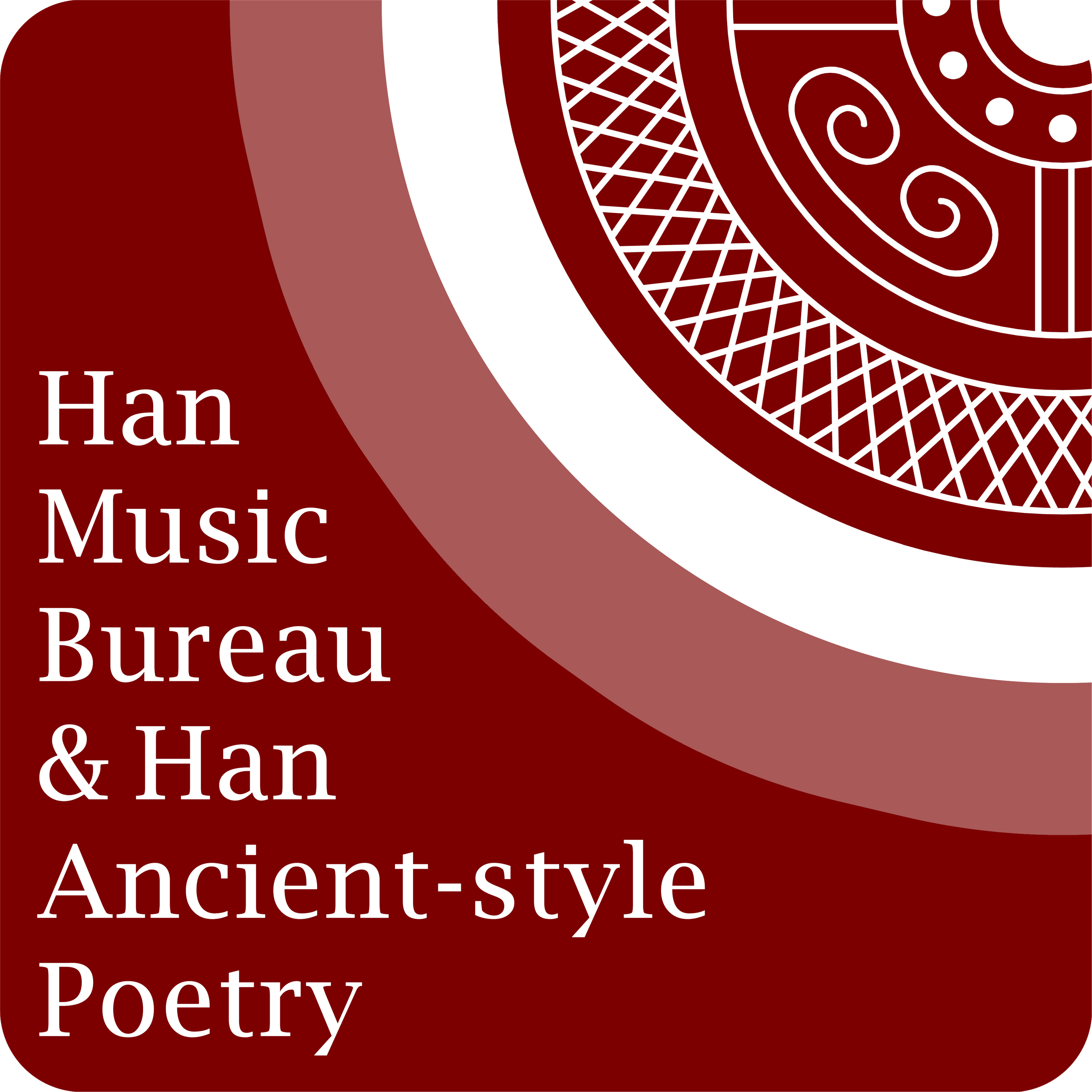
How to Read Chinese Poetry PodcastYuefu Poetry - A Bad Breakup in the Han YuefuThis episode analyzes this yuefu piece from different perspectives. As many of the popular songs of the Han, this poem contains dialogue and monologue at the same time. The poem follows a daring woman’s emotional changes from her initial rage against her lover from the south who jilted her to an unsettling feeling of anxiety.
Guest host: Jui-lung Su, National University of Singapore
2022-05-2313 min
How to Read Chinese Poetry PodcastYuefu Poetry - War as a Theme in Early Popular Chinese PoetryThis episode first discusses the functions of the Han Music Bureau and the yuefu poetry as a poetic genre. It points out the fact that we still don’t know if the Bureau really collected these songs from various regions and matched them with music. Many of the popular poems we now call “Han yuefu” are actually preserved in the History of the Liu Song Dynasty written in the sixth century. The second part focuses on analyzing the yuefu poem entitled, “We Fought South of the Walls” from different angles.
Guest host: Jui-lung Su, National University of Singapore
2022-05-1618 min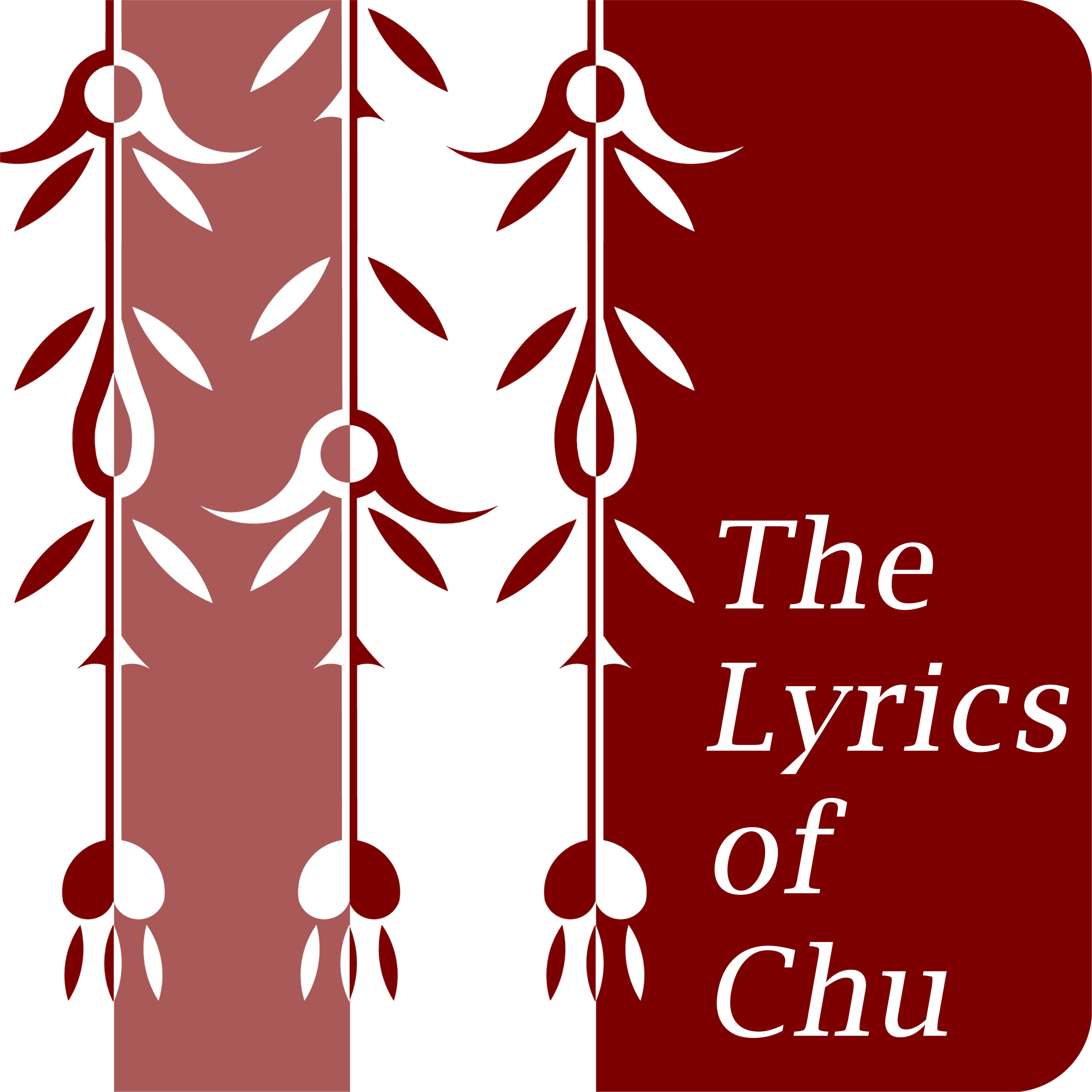
How to Read Chinese Poetry PodcastLisao: The Poem and Its Author As a Composite Text - The Lisao as a Composite IntertextThis episode offers a detailed discussion of the structure and diction of the Lisao and describes the text not as a single poem but as a composite text created from different poetic registers, and different voices, that are otherwise known from the poems of Jiu ge, Jiu zhang, and Tian wen.
Guest host: Martin Kern, Princeton University
2022-05-0921 min
How to Read Chinese Poetry PodcastLisao: The Poem and Its Author As a Composite Text - The Fusion of Poetry and BiographyThis episode discusses how Qu Yuan’s poetry and biography flow seamlessly into each other, and how the figures of poetic hero and heroic poet repeatedly switched places. Likewise, later transmitters, commentators, and poets could appropriate Qu Yuan’s voice with ease.
Guest host: Martin Kern, Princeton University
2022-05-0219 min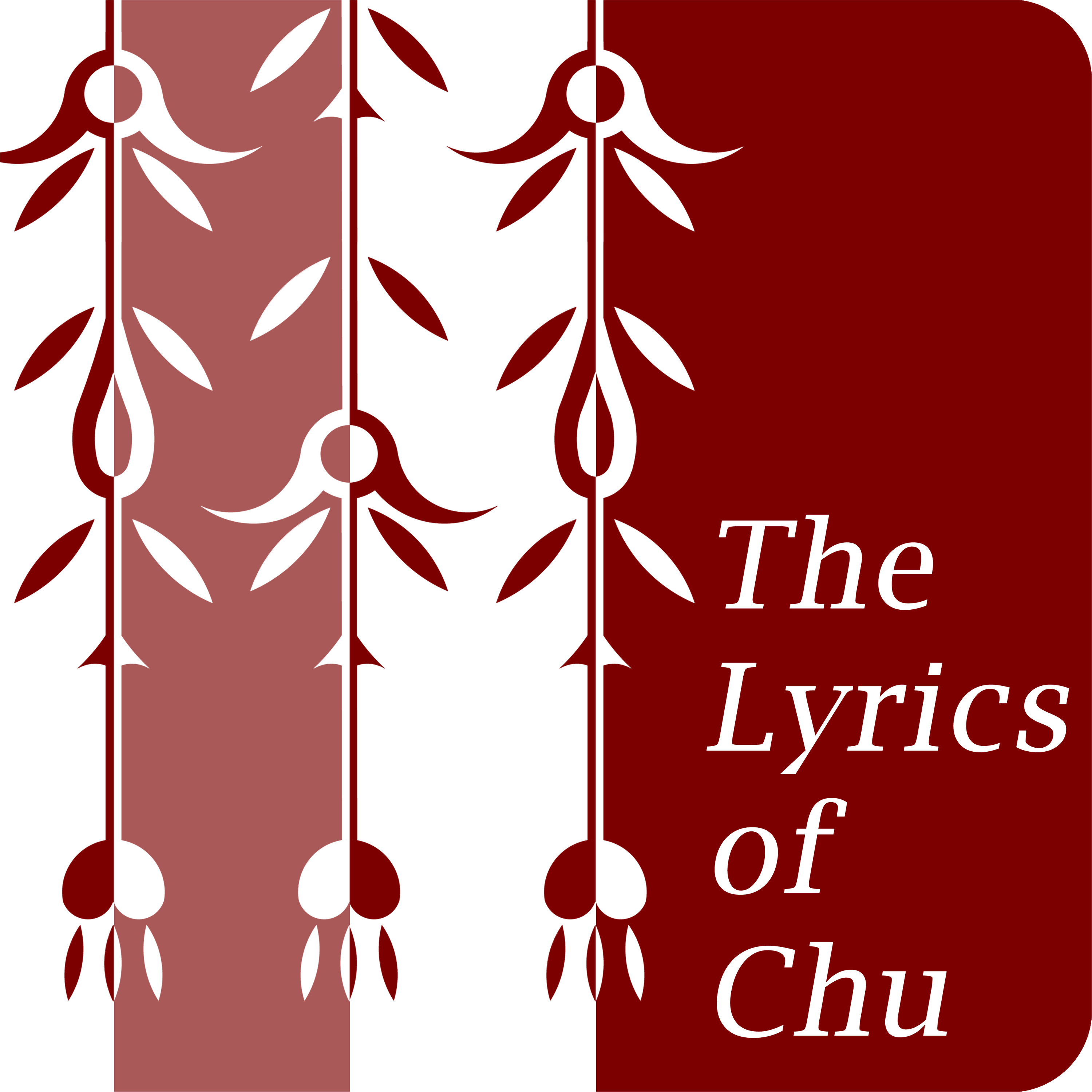
How to Read Chinese Poetry PodcastLisao: The Poem and Its Author As a Composite Text - The Meaning of Qu Yuan in the Western HanThis episode discusses what the Qu Yuan persona meant to Han dynasty intellectuals. Why was Qu Yuan important to Han thinkers in literary, political, and historical, terms? What did they find in the Qu Yuan persona? How did they identify with that persona of their imagination?
Guest host: Martin Kern, Princeton University
2022-04-2519 min
New Books in Chinese StudiesTerry Lautz, "Americans in China: Encounters with the People's Republic" (Oxford UP, 2022)Americans in China: Encounters with the People’s Republic (Oxford, 2022) tells the stories of men and women who have lived and worked in China from before the Communist era to the present. Their experiences provide unique insights and deeply human perspectives on issues that have shaped US engagement with the PRC: politics, diplomacy, education, science, business, art, law, journalism, and human rights. Looming over their narratives is the quandary of whether divergent Chinese and Western worldviews could find common ground.Terry Lautz, former vice president of the Henry Luce Foundation, has chaired the Harvard-Yenching Institute, the Lingnan Fou...
2022-04-2145 min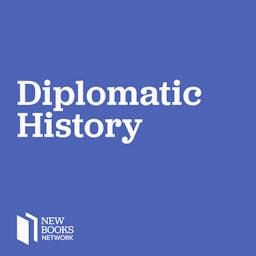
New Books in Diplomatic HistoryTerry Lautz, "Americans in China: Encounters with the People's Republic" (Oxford UP, 2022)Americans in China: Encounters with the People’s Republic (Oxford, 2022) tells the stories of men and women who have lived and worked in China from before the Communist era to the present. Their experiences provide unique insights and deeply human perspectives on issues that have shaped US engagement with the PRC: politics, diplomacy, education, science, business, art, law, journalism, and human rights. Looming over their narratives is the quandary of whether divergent Chinese and Western worldviews could find common ground.Terry Lautz, former vice president of the Henry Luce Foundation, has chaired the Harvard-Yenching Institute, the Lingnan Fou...
2022-04-2147 min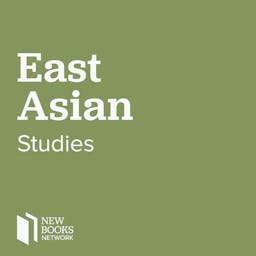
New Books in East Asian StudiesTerry Lautz, "Americans in China: Encounters with the People's Republic" (Oxford UP, 2022)Americans in China: Encounters with the People’s Republic (Oxford, 2022) tells the stories of men and women who have lived and worked in China from before the Communist era to the present. Their experiences provide unique insights and deeply human perspectives on issues that have shaped US engagement with the PRC: politics, diplomacy, education, science, business, art, law, journalism, and human rights. Looming over their narratives is the quandary of whether divergent Chinese and Western worldviews could find common ground.Terry Lautz, former vice president of the Henry Luce Foundation, has chaired the Harvard-Yenching Institute, the Lingnan Fou...
2022-04-2147 min
New Books in World AffairsTerry Lautz, "Americans in China: Encounters with the People's Republic" (Oxford UP, 2022)Americans in China: Encounters with the People’s Republic (Oxford, 2022) tells the stories of men and women who have lived and worked in China from before the Communist era to the present. Their experiences provide unique insights and deeply human perspectives on issues that have shaped US engagement with the PRC: politics, diplomacy, education, science, business, art, law, journalism, and human rights. Looming over their narratives is the quandary of whether divergent Chinese and Western worldviews could find common ground.Terry Lautz, former vice president of the Henry Luce Foundation, has chaired the Harvard-Yenching Institute, the Lingnan Foundation, and the Yal...
2022-04-2147 min
Tuesday BreakfastFighting Unfair Dismissal, French Presidential Elections, Freedom of Political Expression, Painful Periods as a Workplace IssueNews Headlines: //Israeli forces raid Al-Aqsa Mosque //Violence against Muslim community in India //COVID testing requirements scrapped for international arrivals // Reminder: Stop the Expansion of the Dame Phyllis Frost Centre - Online discussion // Linda Fenton was the first Australian woman to sue her employer for unfair dismissal while on maternity leave. Now, she has written about her story, Strong Women Cry Too: Rising from the Black Hole. Linda joined Gemma and Su on Done By Law on April 4th to talk about her 20-year legal and emotional journey. For any listeners who would like to look into the case, the c...
2022-04-1800 min
How to Read Chinese Poetry PodcastThe Lyrics of Chu: Qu Yuan and His Poetic Allegories - Spiritual and Imaginary Journeys in Lisao or “On Encountering Trouble”This episode continues our previous discussion of the Li sao or On Encountering Trouble. It focuses on two failed spiritual/supernatural trips or flights in search of Qu Yuan’s ideal and his final decision to commit suicide as the result of his disillusionment with his ruler and society.
Guest host: Fusheng Wu, The University of Utah
2022-04-1820 min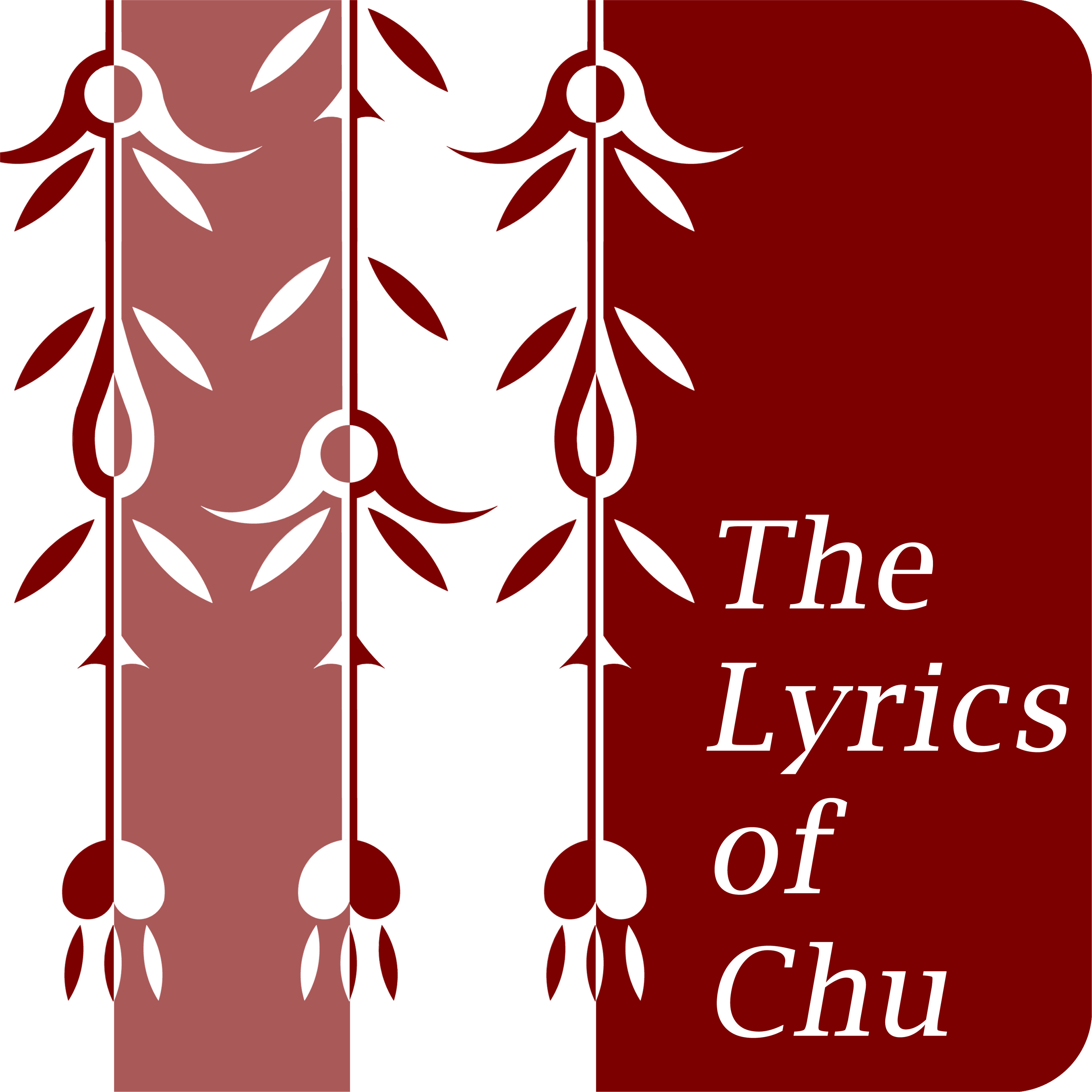
How to Read Chinese Poetry PodcastThe Lyrics of Chu: Qu Yuan and His Poetic Allegories - The Poetic Persona in Lisao or “On Encountering Trouble”This episode discusses Li sao or On Encountring Trouble,” the crowning achievement in the Chu ci repertoire. This poem evolves around the life of Qu Yuan, a poetic persona who is the alleged author of the poem. In the first part of the poem, Qu Yuan talks at length about his glorious family history and his own self-cultivation.
Guest host: Fusheng Wu, The University of Utah
2022-04-1119 min
How to Read Chinese Poetry PodcastThe Lyrics of Chu: Qu Yuan and His Poetic Allegories - A General Introduction to ChuciThis episode provides a brief general introduction to Chuci; it also discusses a poem in this repertoire, Xian jun(“The Lord of the Xiang River), and its influence on Li sao (“On Encountering Trouble”) that will be discussed in the next two episodes.
Guest host: Fusheng Wu, The University of Utah
2022-04-0419 min
How to Read Chinese Poetry PodcastThe Book of Poetry: The Han Canonization - Dead Deer Meat as a GiftThis episode looks at the concerted effort by three prominent Han commentators to allegorize a poem made up of disjointed or rather conflicting parts. It also reflects on the ironic fact that Han commentators’ allegorizing process itself constitutes a beautiful exercise of literary imagination, foreshadowing the fruitful exploitation of semantic, syntactic, and structural ambiguities by Du Fu, Li Shangyin, and other Tang poets.
Host: Zong-qi Cai, Lingnan University of Hong Kong; University of Illinois, Urbana-Champaign
2022-03-2814 min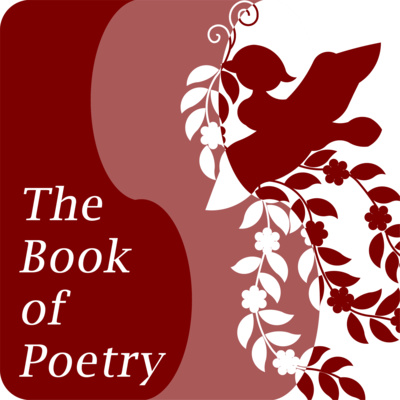
How to Read Chinese Poetry PodcastThe Book of Poetry: The Han Canonization - Romeo and Juliet-like RendezvousThis episode features a poem that enacts, through incremental repetition, the unfolding drama of a young woman being torn by longing, hesitancy, love, and fear while a suitor is crushing all physical barriers to have a tryst with her. To sanitize this poem, Han commentators resorted to an allegorizing strategy called “cutting off a section to create a new meaning,” constructing a political allegory on the thinnest of evidence.
Host: Zong-qi Cai, Lingnan University of Hong Kong; University of Illinois, Urbana-Champaign
2022-03-2114 min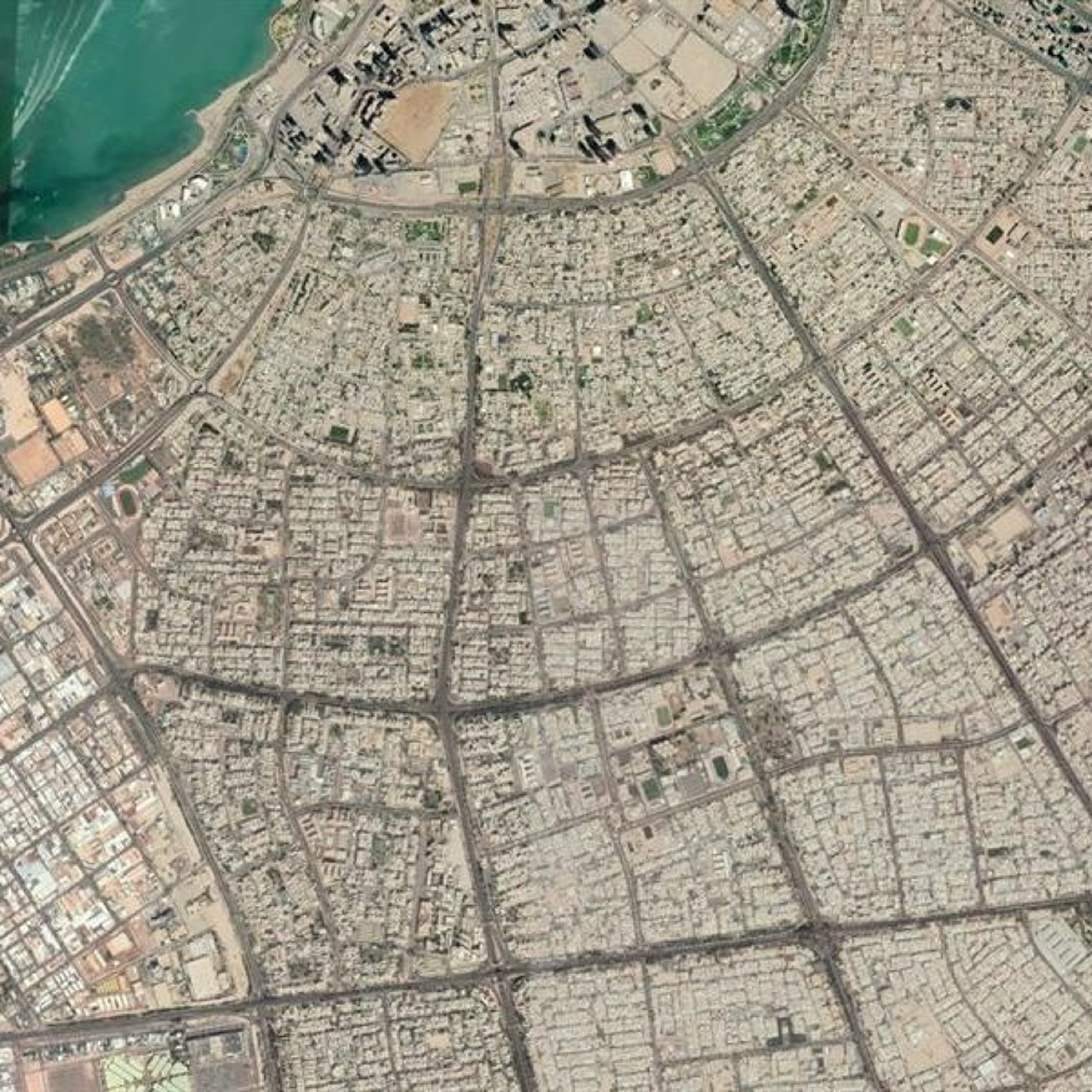
LSE Middle East Centre PodcastsFuture-Proofing Kuwait: Urban Policymaking in the 21st Century (Webinar)This webinar presented the results of two LSE Kuwait Programme research projects:
1. Urban Governance and Spatial Patterns in Kuwait: Exploring the Links Between the Physical and the Socioeconomic - Dhari Alrasheed and Nuno F. da Cruz
2. Can Smart Cities Solve the Housing Crisis? A Study on Korea-Kuwait Partnership for a New Smart City in Kuwait - Hyun Bang Shin and Do Young Oh
Nuno F. da Cruz is Assistant Professorial Research Fellow at LSE Cities, London School of Economics and Political Science. His work on urban and metropolitan governance is multidisciplinary in nature and global in reach, engaging with a...
2022-03-181h 23
How to Read Chinese Poetry PodcastThe Book of Poetry: The Han Canonization - A Love Song and A Moral ExemplumThis episode discusses how the anonymous author of “Prefaces to the Book of Poetry” turned “Osprey,” the first of the 305 Shijing poems, from a lively love song into a moral exempla by means of gender switching. It also explains that such imaginative gender switching was made possible by classical Chinese grammar, especially its ungendered use of pronouns and its frequent omission of sentence subjects.
Host: Zong-qi Cai, Lingnan University of Hong Kong; University of Illinois, Urbana-Champaign
2022-03-1412 min
How to Read Chinese Poetry PodcastThe Book of Poetry and Diplomacy - What Does it Mean to Say, "I love you"?This episode discusses how the language of love and kinship is used in diplomatic negotiations through the recitation of odes. For example, a Lu minister uses a wedding song to compare smaller states to a bride welcomed by her groom (the powerful Jin). A woman picking artemisia with care becomes the analogue for a powerful state cherishing a weak one. A Zheng minister uses an ode about seduction to forestall or resist aggression. A Jin leader affirms an alliance through an ode celebrating brotherhood.
Guest host: Wai-yee Li, Harvard University
2022-03-0717 min
How to Read Chinese Poetry PodcastThe Book of Poetry and Diplomacy - Who is the Boss?This episode uses two scenes of reciting odes to explore the struggle for hegemony. The first shows how a fugitive Jin Prince declare his ambition despite his precarious and dependent position. The second features a Jin leader pushing back against the hubristic self-aggrandizement of a Chu prince.
Guest host: Wai-yee Li, Harvard University
2022-02-2813 min
How to Read Chinese Poetry PodcastThe Book of Poetry and Diplomacy - Who is the Barbarian?This episode discusses how a “barbarian” chief gains diplomatic advantages by reciting an ode now included in Shijing. The recitation both asserts and effaces differences between “Chinese” and “barbarian” states. It seeks to redefine the past and argues for equality and amity between Jin and the Rong.
Guest host: Wai-yee Li, Harvard University
2022-02-2112 min
Líder de Elite com Carlos Hoyos#130 - Desafios de Internacionalizar Pequenas e Médias Empresas com Camilla França, CEO - FX BrazilOlá! Tudo bem?
Falamos com Camilla Ferreira França, CEO da FX Brazil.
E este são os principais pontos deste bate papo que aconteceu no auge da pandemia:
Os mercados de aceitação dos produtos brasileiros.
Brasil como potência da América do Sul.
Os principai desafios das pequenas e médias empresas para internacionalização.
Os motivadores para as pequenas e médias empresas para internacionalização.
Pequenos passsos para iniciar a exportação.
Competitividade com Mercosul.
Importância de conhecer outras línguas.
Apoio para exportação: Agências do governo, órgãos de c...
2022-02-1756 min
The Education & Empowerment PodcastBridging the Gap: How do We Connect the Dots for the Higher Education Stakeholders? The Case for Preparing Young People for Global Citizenship”In this episode, Lynn Pasquerella was interviewed by Bakhtiyor Isoev. Lynn Pasquerella was appointed president of the Association of American Colleges and Universities in 2016, after serving as the eighteenth president of Mount Holyoke College. She has held positions as provost at the University of Hartford and Vice Provost for Academic Affairs and Dean of the Graduate School at the University of Rhode Island. A philosopher whose work has combined teaching and scholarship with local and global engagement, Pasquerella has written extensively on medical ethics, metaphysics, public policy, and the philosophy of law.She is president of the...
2022-02-1623 min
How to Read Chinese Poetry PodcastThe Book of Poetry - Zhou Dynastic Building“Woven” like many of the Da ya (Greater Odes) sings of two of the heroes who laid the groundwork for their grandson and son to overcome the Shang and establish the Zhou dynasty. The text lends itself to memorization and may have been part of early court ritual as our own Star-Spangled Banner celebrates an event in the early history of our country.
Guest host: William H. Nienhauser, University of Wisconsin at Madison
2022-02-1419 min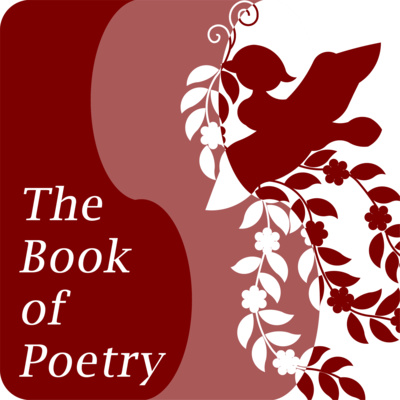
How to Read Chinese Poetry PodcastThe Book of Poetry - Courtship PoemsThe three courtship forms, “I Beg of you, Zhong Zi,” “The Banks of the Ru,” and “The Retiring Girl,” present contrasting depictions of the courtship process in early China. In the first, a village encounter between two lovers or potential lovers is depicted. The man and the woman in “The Banks of the Ru” may be married or simply lovers, but the link to the previous poem is the concern about the girl’s parents. This is the most clearly erotic of the poems presented. “The Retiring Girl” depicts a couple in a relationship with the young woman still reticent to have their...
2022-02-0726 min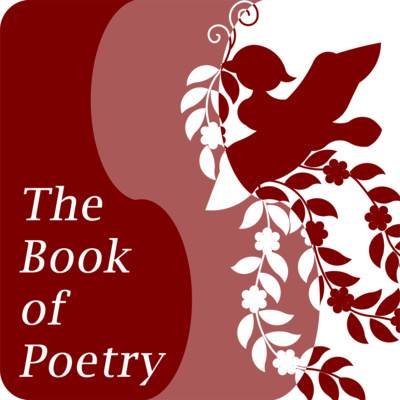
How to Read Chinese Poetry PodcastThe Book of Poetry - Marriage PoemsA brief introduction to The Book of Poetry (Shijing), the earliest Chinese poetical collection. While providing close reading of two poems, it informs us about the provenance, subgenres, presentational modes, thematic categories, and formal features of this great poetical collection.
Guest Host:William H. Nienhauser, the University of Wisconsin at Madison
2022-01-2523 min
New Books in East Asian StudiesDarryl Sterk, "Indigenous Cultural Translation: A Thick Description of Seediq Bale" (Routledge, 2020)Indigenous Cultural Translation: A Thick Description of Seediq Bale (Routledge, 2020) is about the process that made it possible to film the 2011 Taiwanese blockbuster Seediq Bale in Seediq, an endangered indigenous language. Seediq Bale celebrates the headhunters who rebelled against or collaborated with the Japanese colonizers at or around a hill station called Musha starting on October 27, 1930, while this book celebrates the grandchildren of headhunters, rebels, and collaborators who translated the Mandarin-language screenplay into Seediq in central Taiwan nearly eighty years later.As a “thick description” of Seediq Bale, this book describes the translation process in detail, showing how the scr...
2021-11-231h 54
Hear Queer StoriesEps 11 - How Queer Films Memorialize Queer LivesIn this session, the speaker, Dr. Mikee Inton-Campblel, talks about how Philippine Queer Cinema memorializes queer Lives.
Dr. Campbell completed her PhD in Cultural Studies at Lingnan University, Hong Kong. Her research involves representations and discourses of the Bakla in Philippine Cinema.
2021-11-1405 min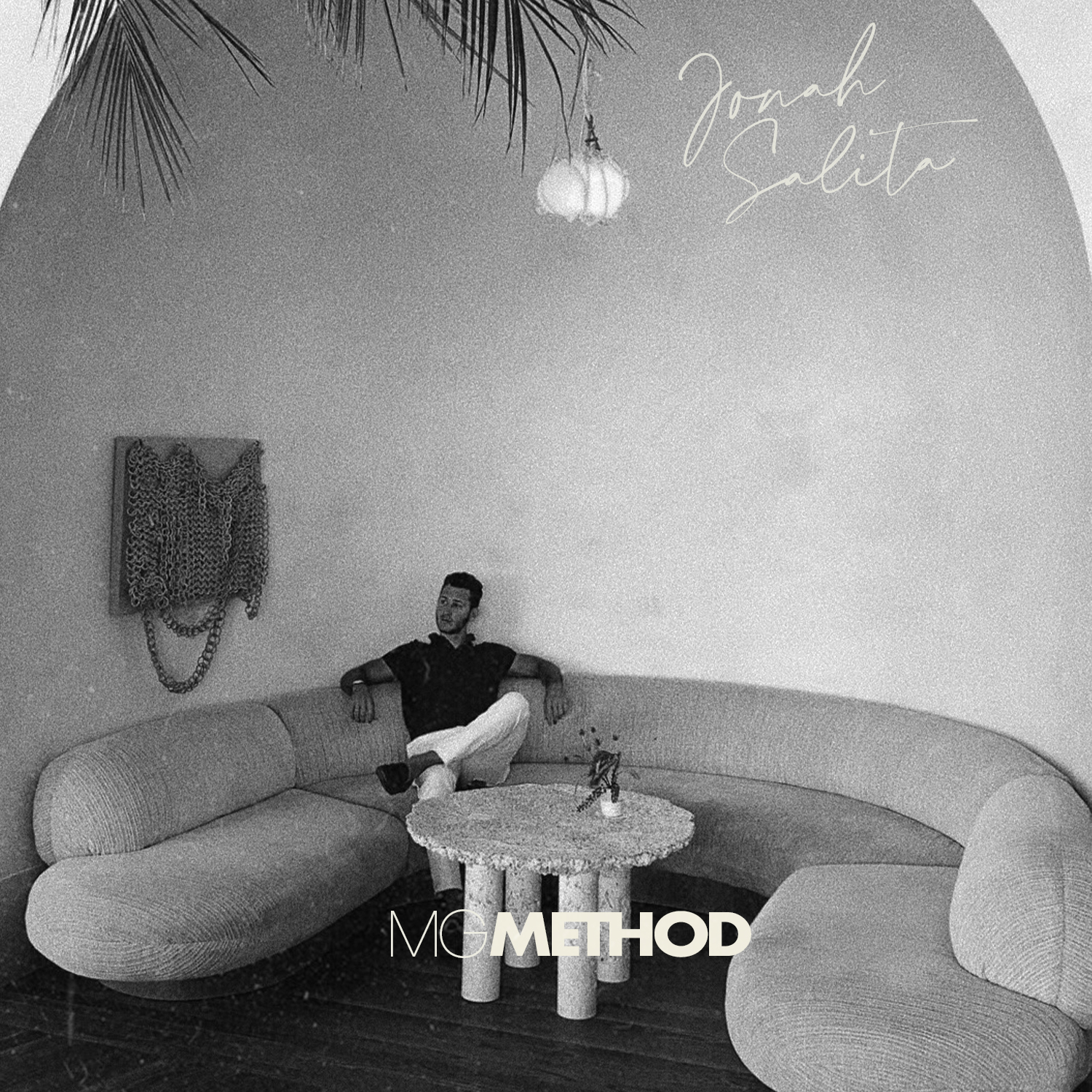
MG METHOD the podcastEP 034 - Providing Access to Quality Mental Health Support - with Jonah Salitahttps://www.instagram.com/jonahsalita/ (Jonah Salita) is an entrepreneur, and creative consultant.
He’s the co-founder and Chief Innovation Officer of https://www.diallapp.com/ (Diall), and the creator and creative force behind Vasco Creative, an early-stage creative consulting firm. He’s also the Chief Marketing Officer at Kavira Health.
Jonah’s entrepreneurial spirit started when he stumbled into the creative world after designing his own tennis apparel brand because he was too small to fit into the “cool” looking adult clothes.
Salita attended Hobart College in upstate New York, studying Economics and Media and Society. During his time at Hobart...
2021-09-231h 20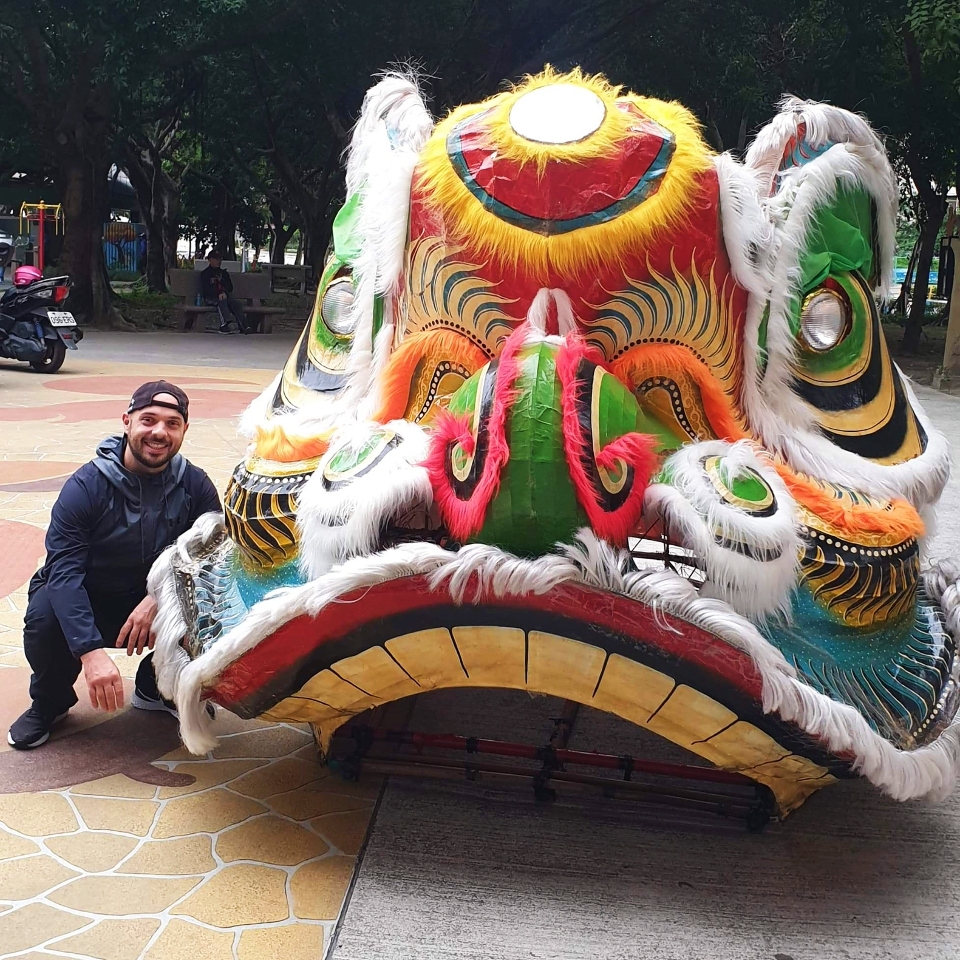
La Voie des MaîtresDanse du Lion - Partie 3Découvrons cette fois les caractéristiques des lions du sud, et plus particulièrement de ceux du Guangdong.
Lexique :
Mabu 馬步 : Appelée en français "position du cavalier", il s'agit de la position de base la plus importante du Wushu. En plus de renforcer les jambes et les muscles fessiers, elle renforce également le mental, car très douloureuse pour le corps. Elle se pratique les deux jambes ouvertes, genoux à l'extérieur, pieds parallèles entre eux et cuisses parallèles au sol, formant un angle de 90° entre les cuisses et les mollets.
Wushi 舞獅 : Nom donné en Chinois à la da...
2021-07-2800 min
The Balut Kiki Project16: GAYlikulaHey Bessie, send us a text message!Eto na nga yun, Marites. Samahan mo kaming pasukin ang mundo ni Glory. Usisain natin kung paano pinalaki ni Coring si Nonoy. Sino ang kasiping ni Manay Sharon pagkagat ng dilim sa Maynila? Samahan naten sa pagdadalaga si Maximo. Alamin natin ang Lihim ni Antonio. Saksihan natin ang pag-iibigan nina Ramon at Fredo. In short mga bes, maki-tsismis tayo sa iba’t ibang queer portrayals sa Filipino movies na maaring humubog sa konsepto ng 'bakla' sa lipunan. May growth ba sa
2021-07-2059 min
The Sociology ShowInterview with Dr Paul O'ConnorIn this episode, Matthew talks to Dr Paul O' Connor. Paul is a Lecturer in Sociology and Anthropology at the University of Exeter, and Adjunct Assistant Professor in Sociology at Lingnan University. His research is focussed on religion, ethnicity, and the sociology of skateboarding. He received his PhD from the University of Queensland and has lived and taught in Hong Kong and Prague.He is author of the book ‘Islam in Hong Kong’ (2102) and ‘Skateboarding and Religion’ (2020). His research on skateboarding has looked at helmet use, network capital, secular pilgrimage, middle aged skateboarders, the hybridity of skateparks, and women sk...
2021-07-0540 min
Off the Page: A Columbia University Press PodcastPeter E. Hamilton, "Made in Hong Kong: Transpacific Networks and a New History of Globalization" (Columbia UP, 2021)Between 1949 and 1997, Hong Kong transformed from a struggling British colonial outpost into a global financial capital. Made in Hong Kong: Transpacific Networks and a New History of Globalization (Columbia University Press, 2021) delivers a new narrative of this metamorphosis, revealing Hong Kong both as a critical engine in the expansion and remaking of postwar global capitalism and as the linchpin of Sino-U.S. trade since the 1970s.In Made in Hong Kong, Peter E. Hamilton explores the role of an overlooked transnational Chinese elite who fled to Hong Kong amid war and revolution. Despite losing material possessions, these indust...
2021-06-291h 09
New Books in East Asian StudiesPeter E. Hamilton, "Made in Hong Kong: Transpacific Networks and a New History of Globalization" (Columbia UP, 2021)Between 1949 and 1997, Hong Kong transformed from a struggling British colonial outpost into a global financial capital. Made in Hong Kong: Transpacific Networks and a New History of Globalization (Columbia University Press, 2021) delivers a new narrative of this metamorphosis, revealing Hong Kong both as a critical engine in the expansion and remaking of postwar global capitalism and as the linchpin of Sino-U.S. trade since the 1970s.In Made in Hong Kong, Peter E. Hamilton explores the role of an overlooked transnational Chinese elite who fled to Hong Kong amid war and revolution. Despite losing material possessions, these indust...
2021-06-291h 13
New Books in Chinese StudiesPeter E. Hamilton, "Made in Hong Kong: Transpacific Networks and a New History of Globalization" (Columbia UP, 2021)Between 1949 and 1997, Hong Kong transformed from a struggling British colonial outpost into a global financial capital. Made in Hong Kong: Transpacific Networks and a New History of Globalization (Columbia University Press, 2021) delivers a new narrative of this metamorphosis, revealing Hong Kong both as a critical engine in the expansion and remaking of postwar global capitalism and as the linchpin of Sino-U.S. trade since the 1970s.In Made in Hong Kong, Peter E. Hamilton explores the role of an overlooked transnational Chinese elite who fled to Hong Kong amid war and revolution. Despite losing material possessions, these indust...
2021-06-291h 09
New Books in EconomicsPeter E. Hamilton, "Made in Hong Kong: Transpacific Networks and a New History of Globalization" (Columbia UP, 2021)Between 1949 and 1997, Hong Kong transformed from a struggling British colonial outpost into a global financial capital. Made in Hong Kong: Transpacific Networks and a New History of Globalization (Columbia University Press, 2021) delivers a new narrative of this metamorphosis, revealing Hong Kong both as a critical engine in the expansion and remaking of postwar global capitalism and as the linchpin of Sino-U.S. trade since the 1970s.In Made in Hong Kong, Peter E. Hamilton explores the role of an overlooked transnational Chinese elite who fled to Hong Kong amid war and revolution. Despite losing material possessions, these indust...
2021-06-291h 13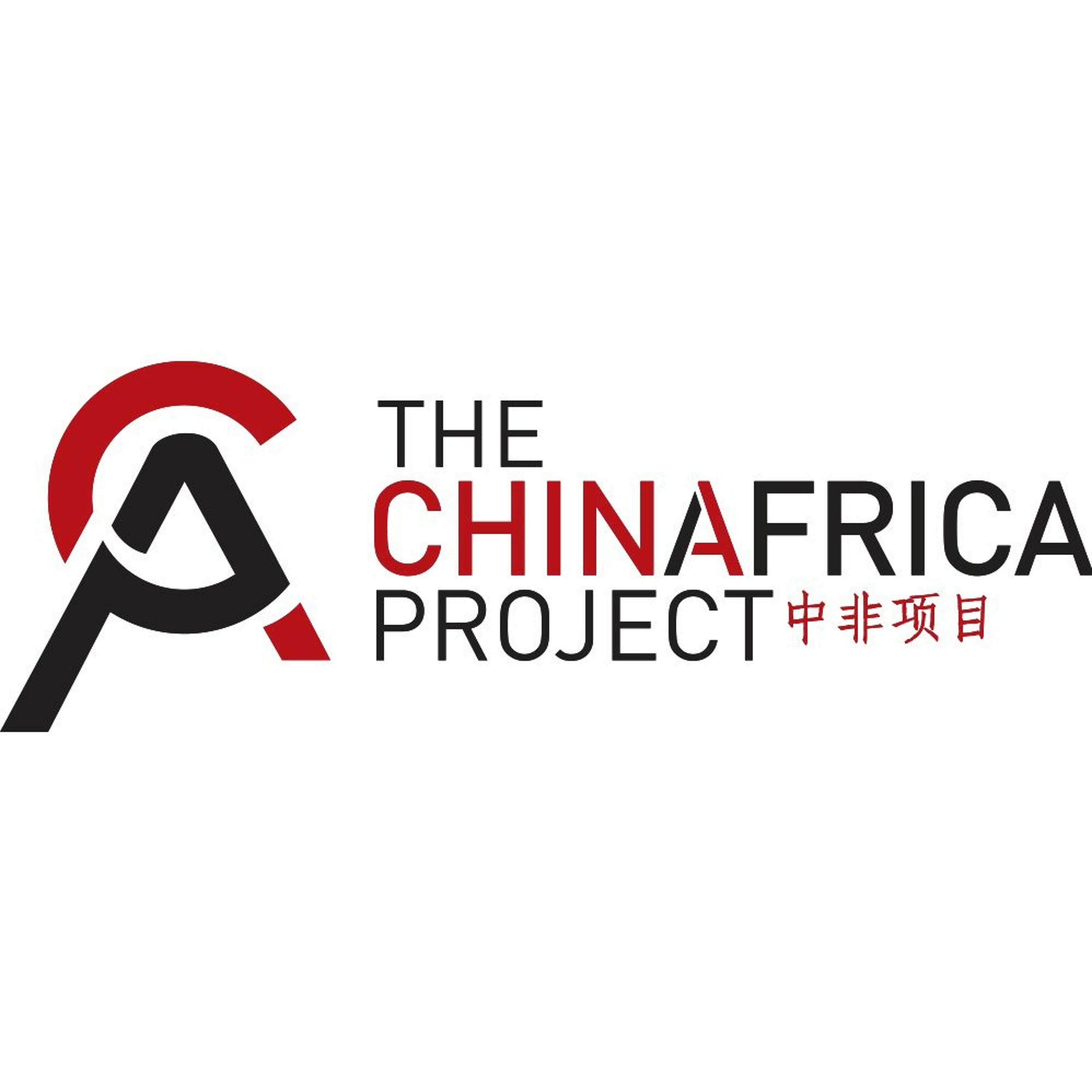
The China Africa ProjectUpdate on the Chinese Debt Situation in AfricaApril 11th will mark the one-year anniversary of what's become known as "the Guangzhou Incident" when dozens, possibly hundreds of African residents in the southern Chinese city were evicted from their homes and hotels. Chinese officials denied that Black and African residents were singled out as part of a broader crackdown to enforce stringent COVID-19 health regulations, but much of the rest of the world didn't buy it after they saw countless social videos depicting blatant maltreatment.
Although many people today associate Guangzhou with what happened last April, the fact is that the African diaspora community there had been under...
2021-02-2657 min
The China Africa ProjectChange in Guangzhou's African Diaspora CommunityApril 11th will mark the one-year anniversary of what's become known as "the Guangzhou Incident" when dozens, possibly hundreds of African residents in the southern Chinese city were evicted from their homes and hotels. Chinese officials denied that Black and African residents were singled out as part of a broader crackdown to enforce stringent COVID-19 health regulations, but much of the rest of the world didn't buy it after they saw countless social videos depicting blatant maltreatment.
Although many people today associate Guangzhou with what happened last April, the fact is that the African diaspora community there had been under...
2021-02-2356 min
History Against the GrainThe Past is PoliticalHeads up Vanuatu, History Against the Grain is on its way! Chris and Josh play a very special game of Love/Love, Chris discusses the massive impact of intellectual historian Hayden White on how we think about and engage with the past, and Josh interviews Lingnan University's Vincent Leung about his remarkable and extremely relevant book, The Politics of the Past in Early China.
2020-05-081h 14
The China Africa ProjectInitial Reflections on an Unprecedented Crisis in China-Africa RelationsThe widespread evictions and mistreatment of African migrants in the southern Chinese city of Guangzhou has caused a serious rupture in China-Africa relations. Chinese ambassadors across Africa have been called in to various foreign ministries to explain why so many of their nationals in Guangzhou have been visibly mistreated by authorities and rendered homeless by the evictions from their homes and hotels.
The Chinese government is beginning to mobilize a response that depicts the well-documented evictions and mistreatment as "rumors" according to an article published in the Global Times newspaper. Similarly, the government is blaming western media, namely CNN, AFP...
2020-04-1237 min
Factory FuturistWelcome to the Factory Futurist PodcastWelcome to the Factory Futurist Podcast where we profile the thought leaders, technologies and companies revolutionizing high-tech manufacturing. We learn from the best about how they sustain high performance leadership in technology, their personal lives, and their companies.About the Host:Drew Allen is the VP of Strategic Development at Grace Engineered Products, Inc. In addition to his role at Grace, Drew led the acquisition of IIoT technology in 2018, forming the partner company Percēv to develop and expand this technology into new markets and applications.Drew also sits on the advisory board f...
2020-03-3001 min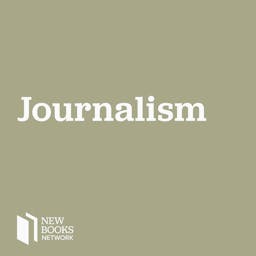
New Books in JournalismDiana Lemberg, "Barriers Down: How American Power and Free-Flow Policies Shaped Global Media" (Columbia UP, 2019)Since the 1940s, America’s relations with the rest of the world have been guided by the idea of promoting the free flow of information. It’s an idea that seems benign, perhaps even difficult to argue against—who could possibly oppose the freedom of information? But, as Diana Lemberg shows in her exciting new book, Barriers Down: How American Power and Free-Flow Policies Shaped Global Media (Columbia University Press, 2019), the idea wasn’t always benign and many fought against its implementation.In the book, Lemberg, an associate professor at Lingnan University, examines how American businessmen, statesmen, and soci...
2020-02-2846 min
Off the Page: A Columbia University Press PodcastDiana Lemberg, "Barriers Down: How American Power and Free-Flow Policies Shaped Global Media" (Columbia UP, 2019)Since the 1940s, America’s relations with the rest of the world have been guided by the idea of promoting the free flow of information. It’s an idea that seems benign, perhaps even difficult to argue against—who could possibly oppose the freedom of information? But, as Diana Lemberg shows in her exciting new book, Barriers Down: How American Power and Free-Flow Policies Shaped Global Media (Columbia University Press, 2019), the idea wasn’t always benign and many fought against its implementation.In the book, Lemberg, an associate professor at Lingnan University, examines how American businessmen, statesmen, and soci...
2020-02-2849 min
Jade Bells and Bamboo PipesGuqin by Xie DaoxiuXie Daoxiu (1940-2019) was a famous qin master in China. He had devoted himself to the Art of Lingnan Qin Group for more than 40 years. The most ancient traditional music of Lingnan Qin Group is said to be composed early in Song Dynasty (960-1279). Qin is the most ancient instrument of Chinese traditional music.
2019-11-1900 min
Next Level LeaderEarly economic childhood development is the key to thriving communities Arthur J. Rolnick is a senior fellow at the Humphrey School of Public Affairs at the University of Minnesota. He previously served at the Federal Reserve Bank of Minneapolis as a senior vice president and director of research and as an associate economist with the Federal Open Market Committee—the monetary policymaking body for the Federal Reserve System. Rolnick is working to advance multidisciplinary research on child development and social policy. His essays on public policy issues have gained national attention; his research interests include banking and financial economics, monetary policy, monetary history, the economics of federalism, and...
2019-07-1550 min
Asia's Developing FutureAttempts to slow the People’s Republic of China’s housing construction expose other problemsGhost cities full of empty apartment blocks are evidence of the central government’s failure to slow booming house construction in the People’s Republic of China.
Conflicting incentives for local government officials, and a lack of alternative investments in China, have meant even the toughest of restrictions haven’t been able to stop developers building ever more houses.
The housing industry is a big part of China’s economy. Real estate accounts for one-sixth of its GDP, a quarter of total fixed asset investment, 14% of urban employment, and 20% of bank loans.
Research done for the Asian Development Bank Institute finds th...
2018-05-3005 min
Human Rights a DayApril 21, 1995 - David LamDavid Lam, Canada’s first Chinese Canadian lieutenant governor, retires.David See-Chai Lam was born in Hong Kong in 1923 where, as the grandson of a Baptist minister, he was brought up Christian. Lam received an economics degree from Lingnan University in China and an MBA from Temple University in Philadelphia. While working in banking in Hong Kong, he married his wife Dorothy, with whom they had three daughters. The family immigrated to Canada in 1967 and became Canadian citizens shortly thereafter. After a very successful career in development and investing, Lam turned to philanthropic interests; he and Dorothy bestowed many gifts on...
2017-04-2102 min
Language Mining Podcast - Der Podcast mit den besten Tipps und Tricks zum SprachenlernenLMP 023: Fließend in 6 MonatenInspiriert durch einen Vortrag von Chris Lonsdale von der Lingnan University in Hong Kong sprechen wir in dieser Episode über die von Chris vorgeschlagenen 5 Prinzipien und 7 Aktionen, mit denen man jede Sprache in 6 Monaten fließend spricht. (Mehr…)
2016-08-0516 min